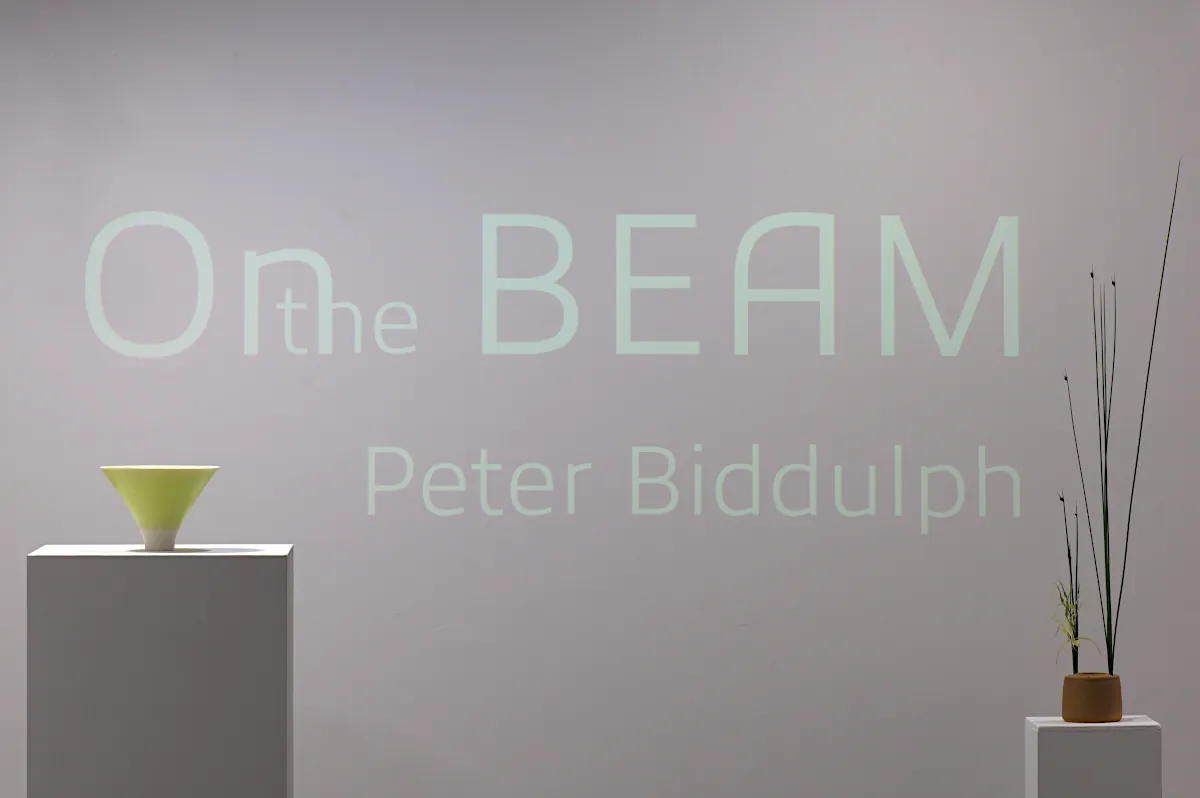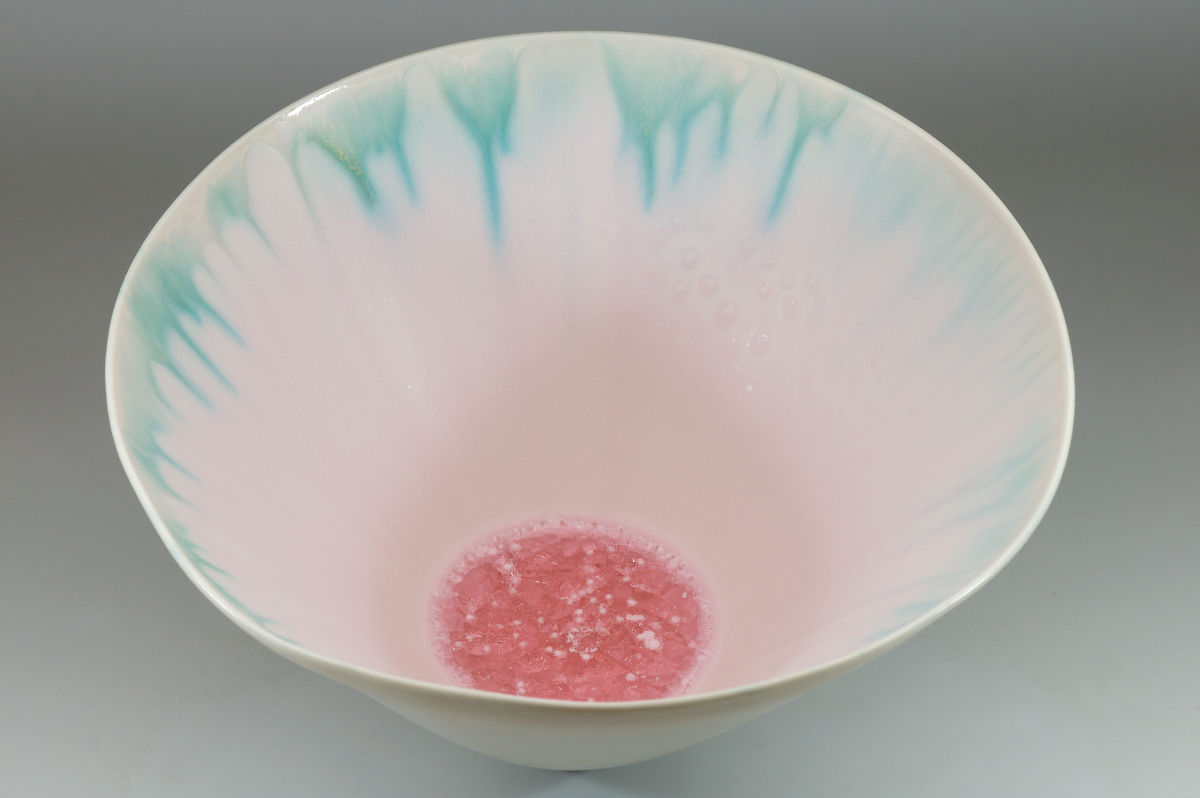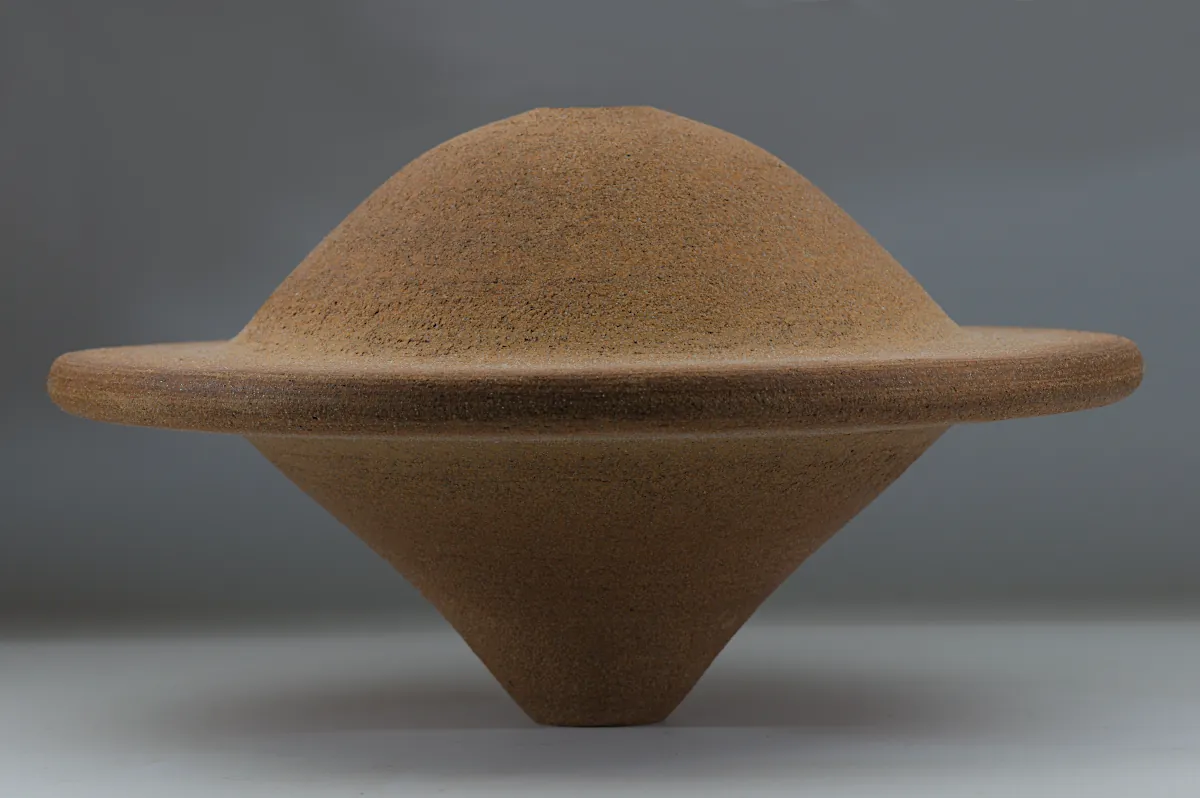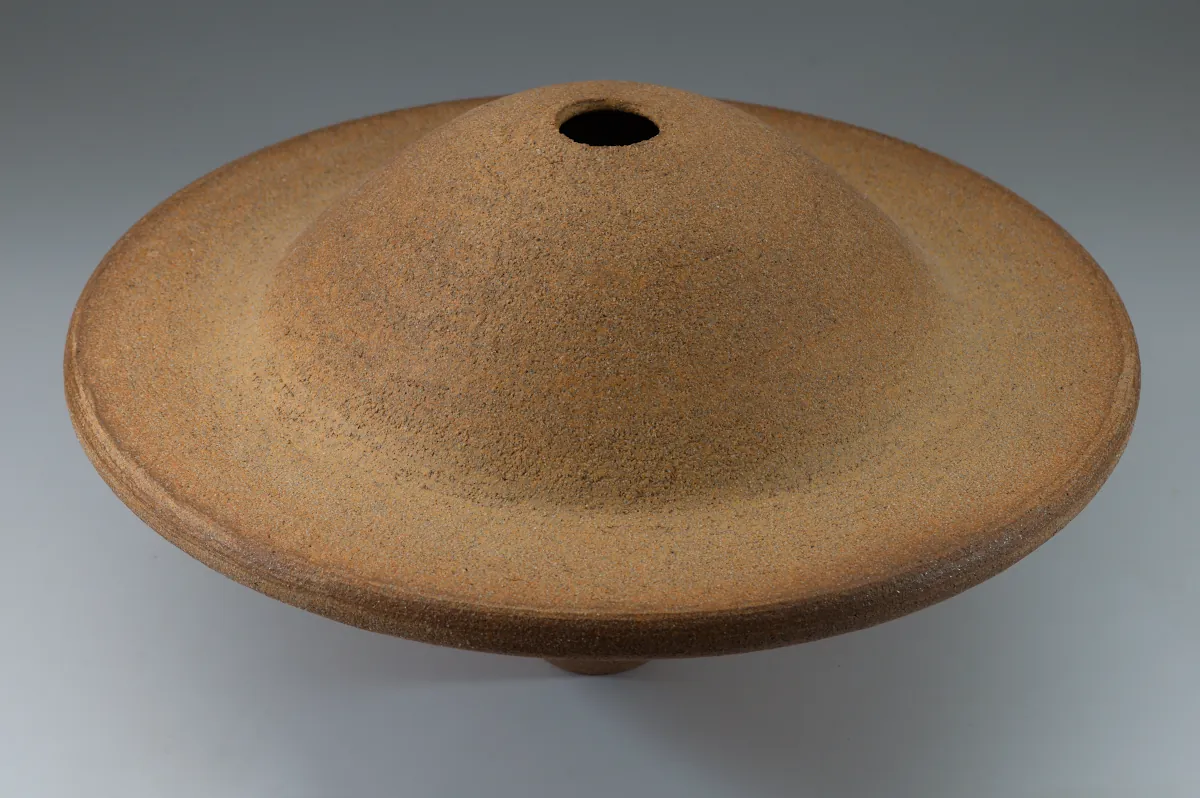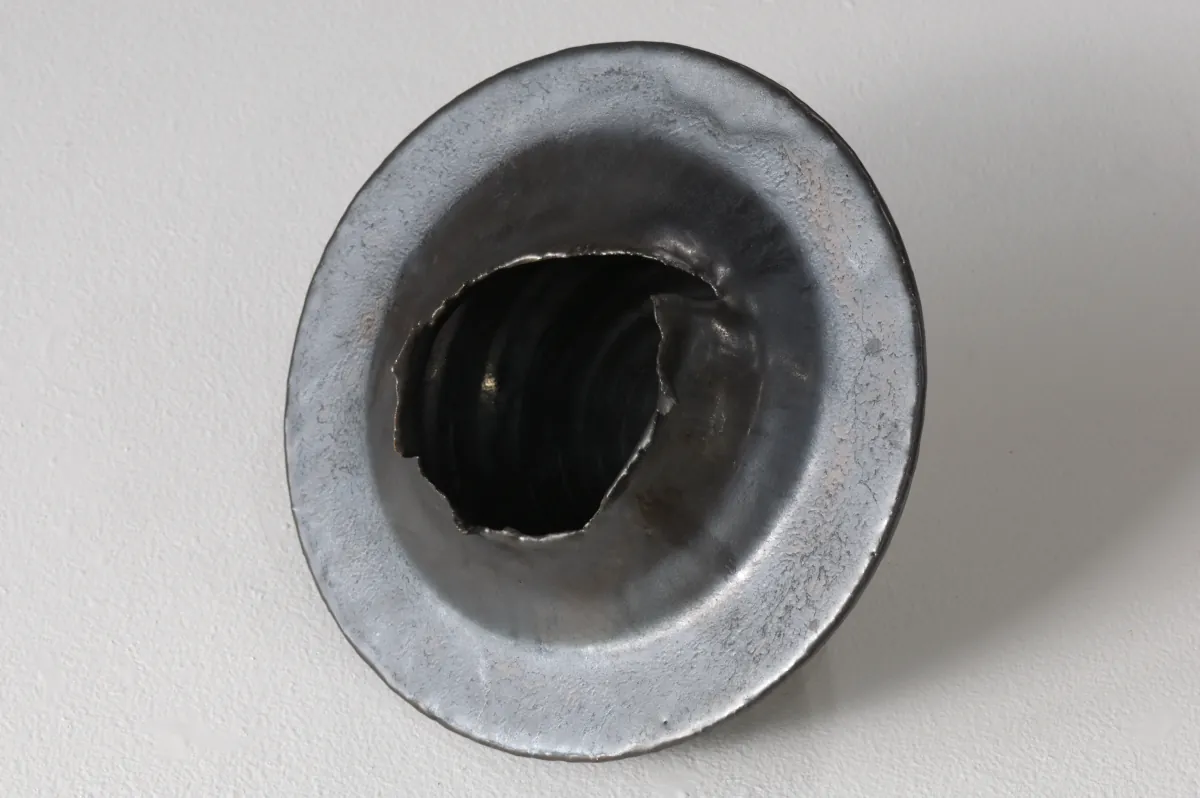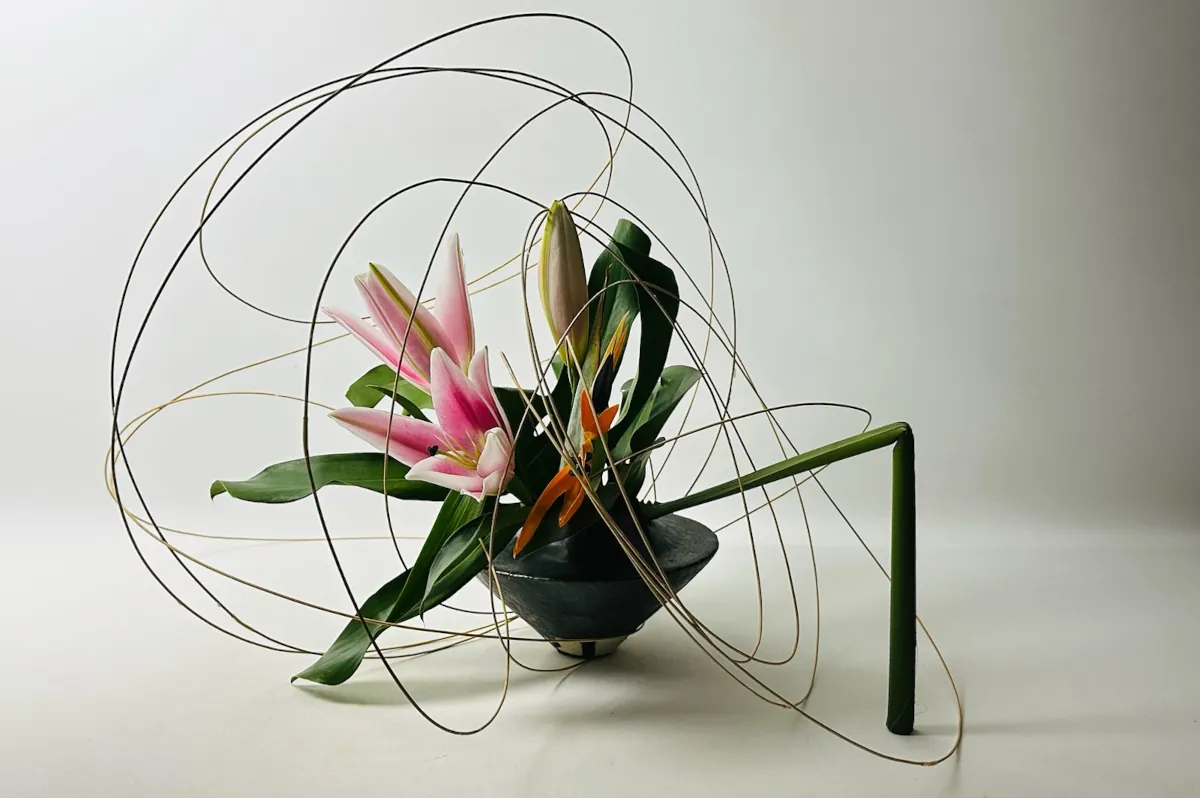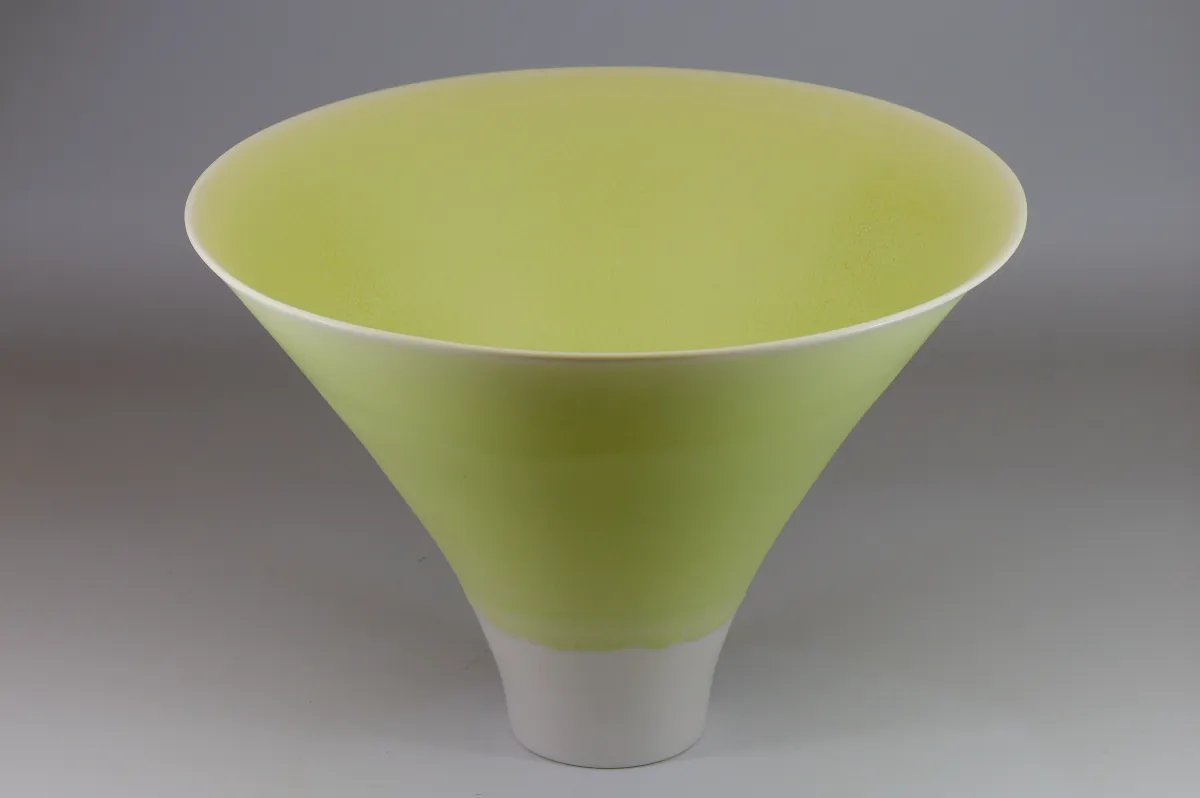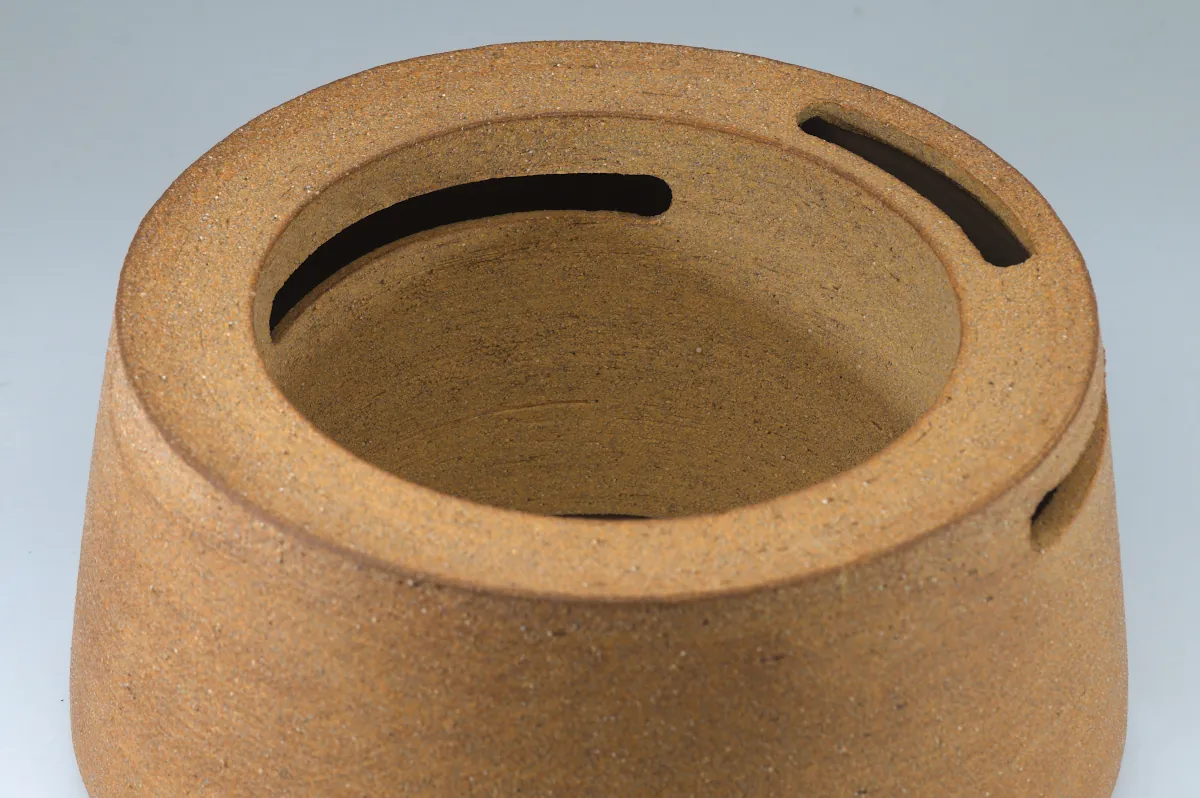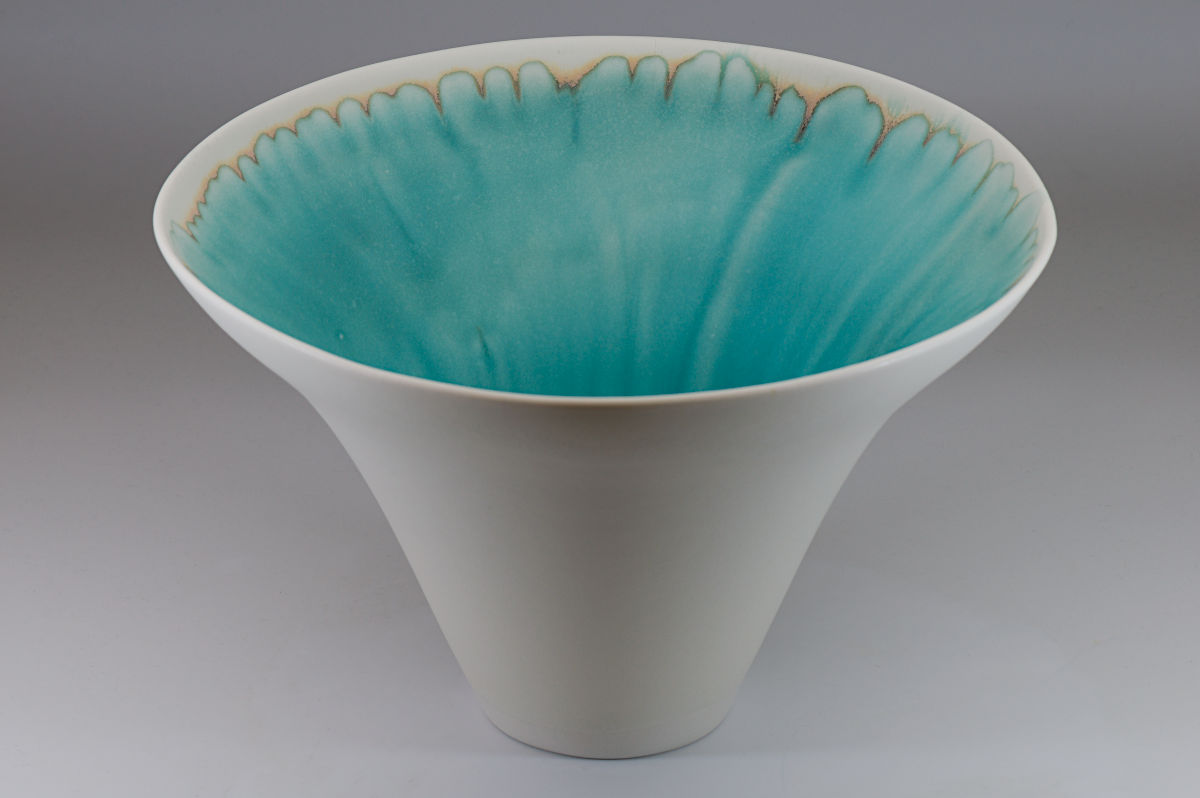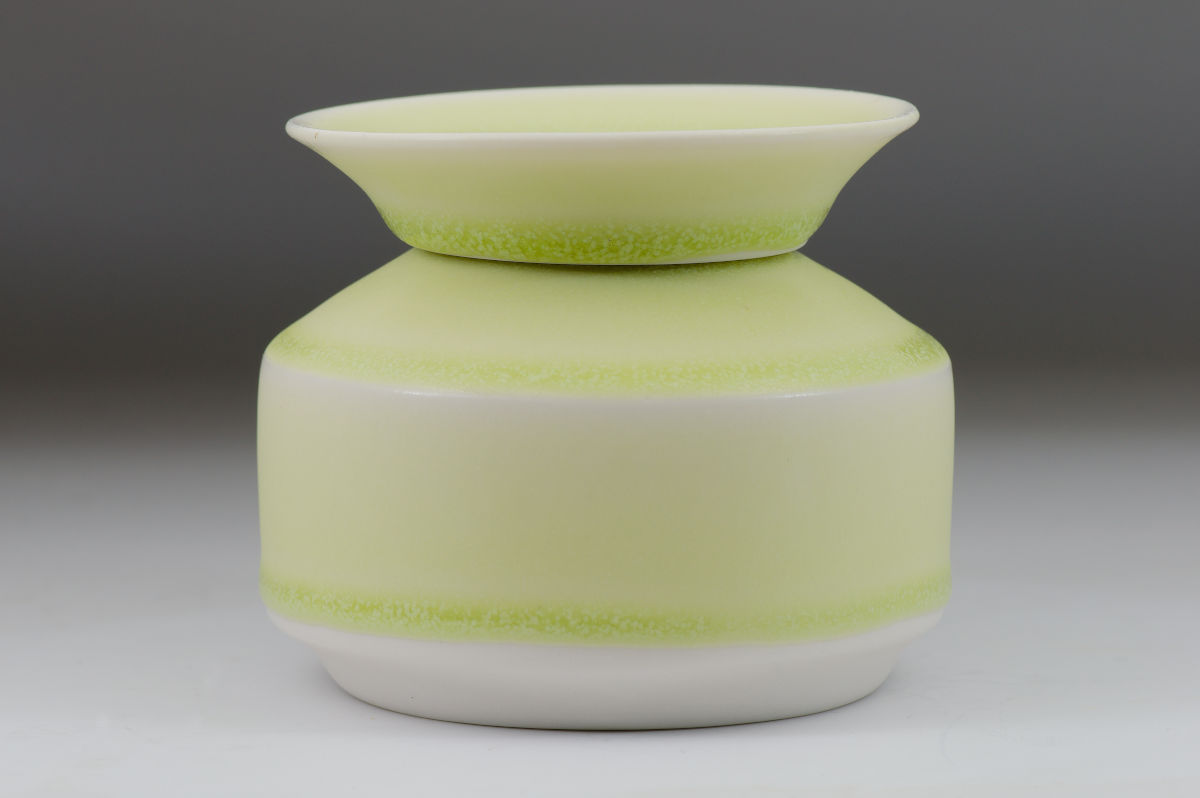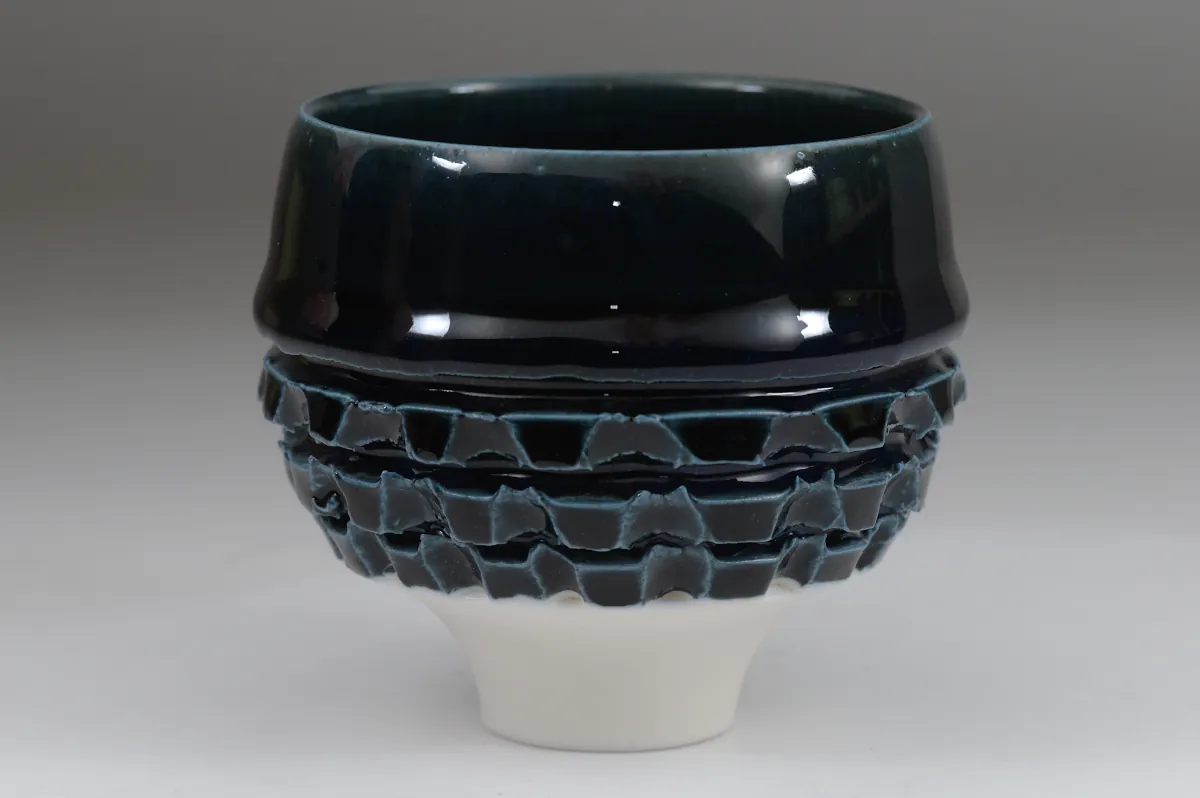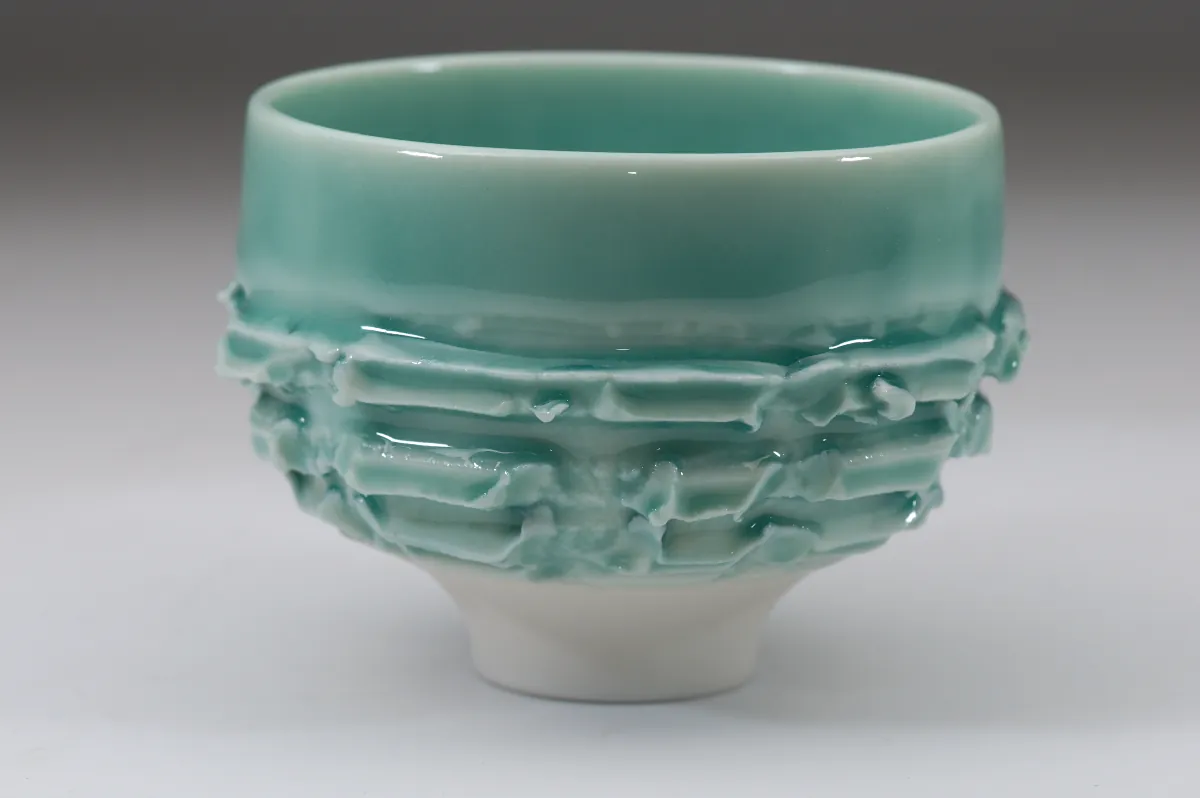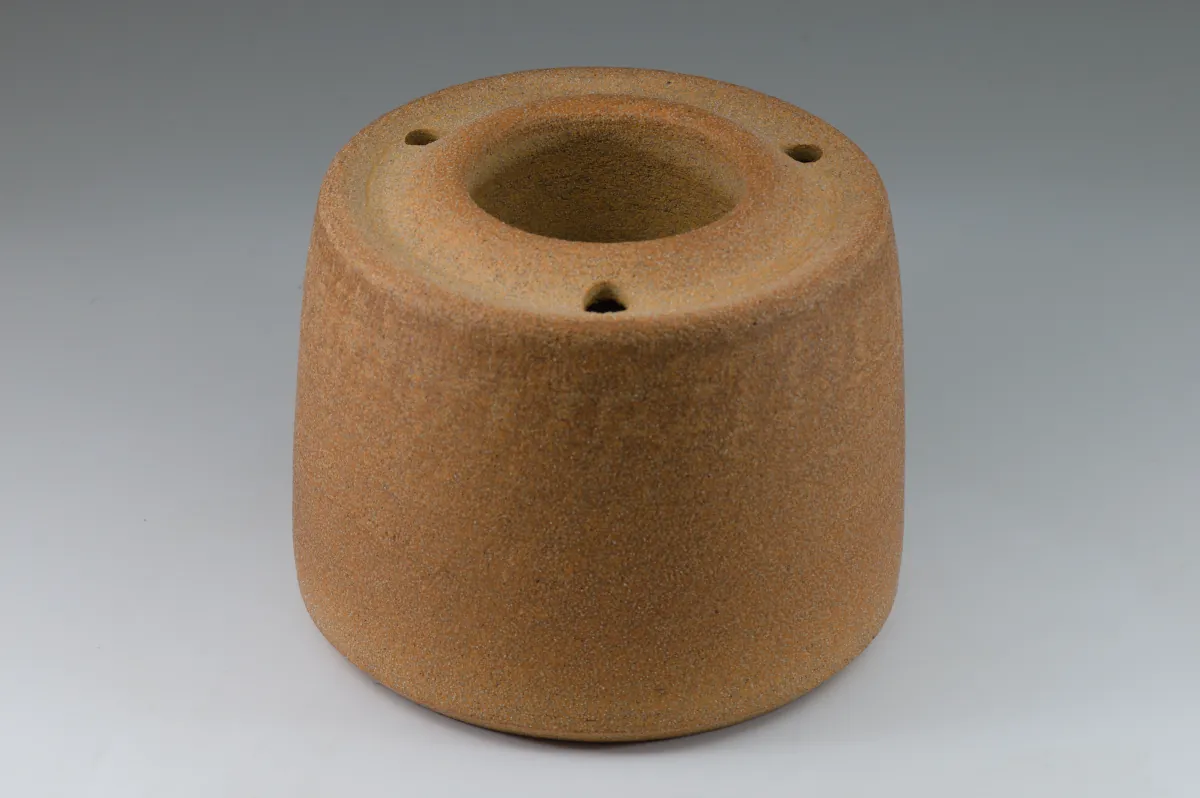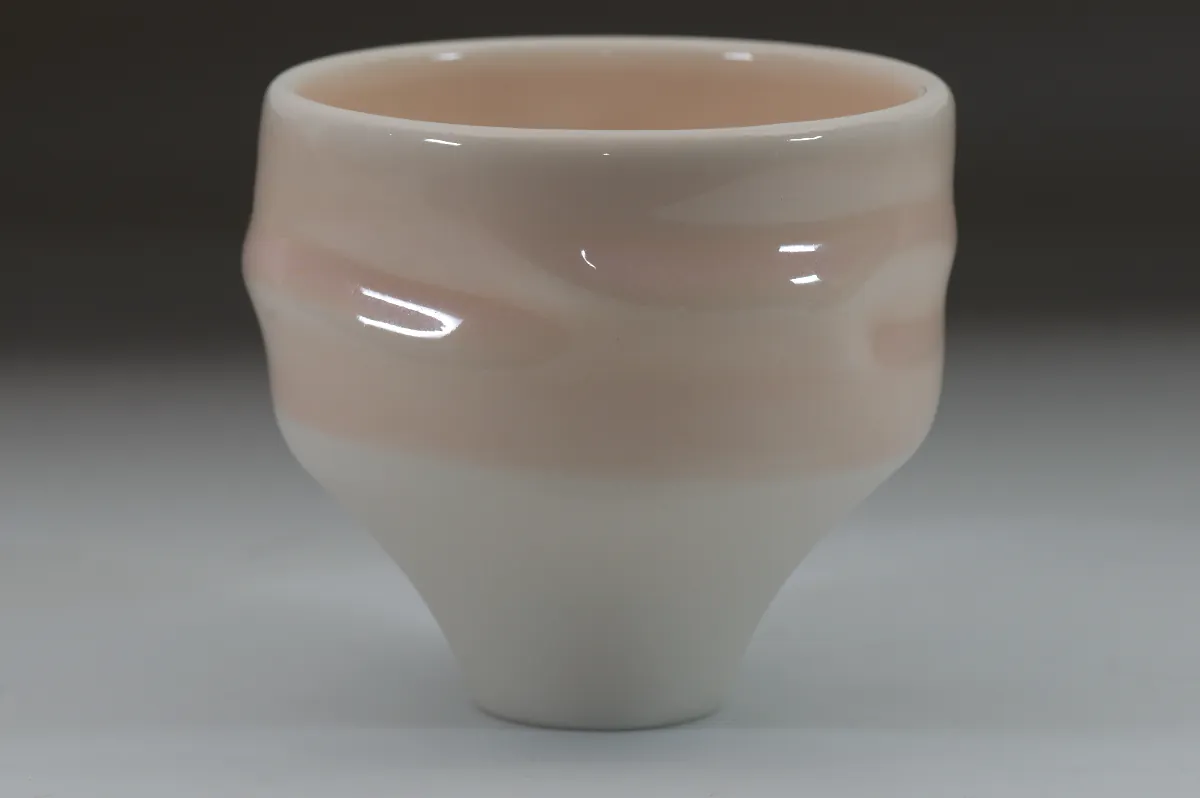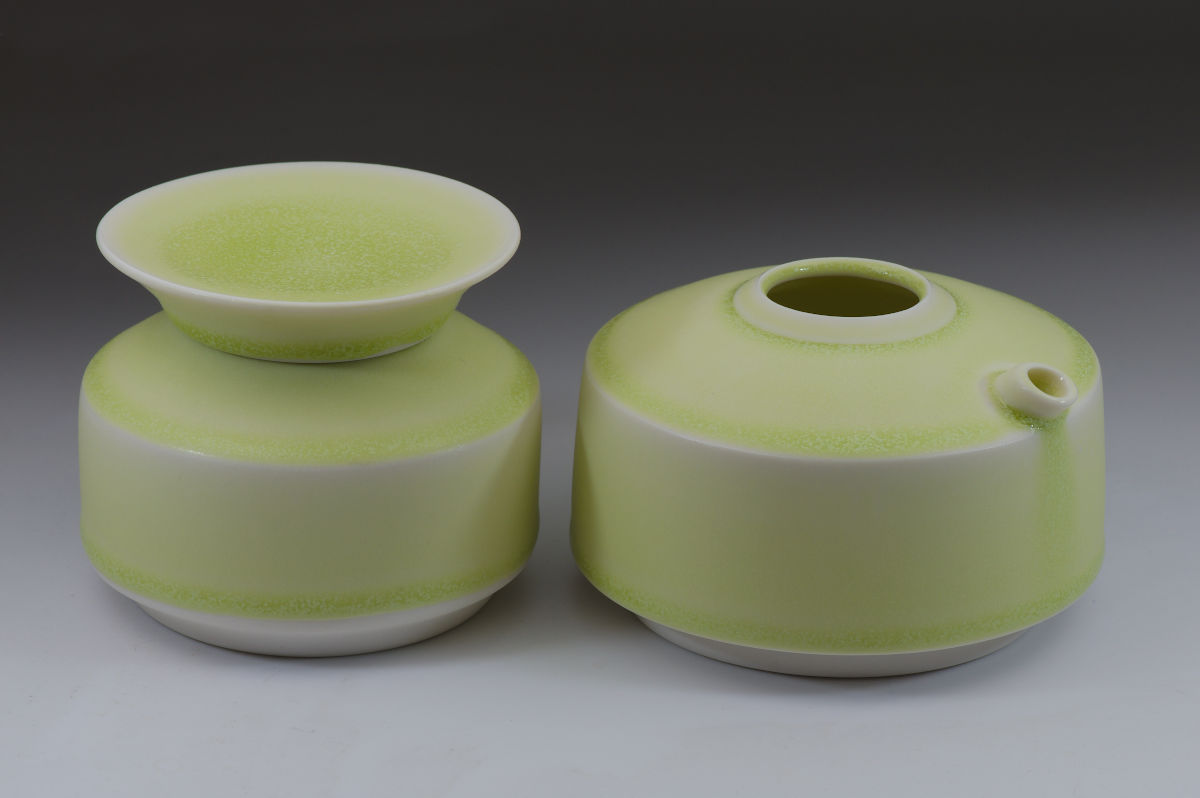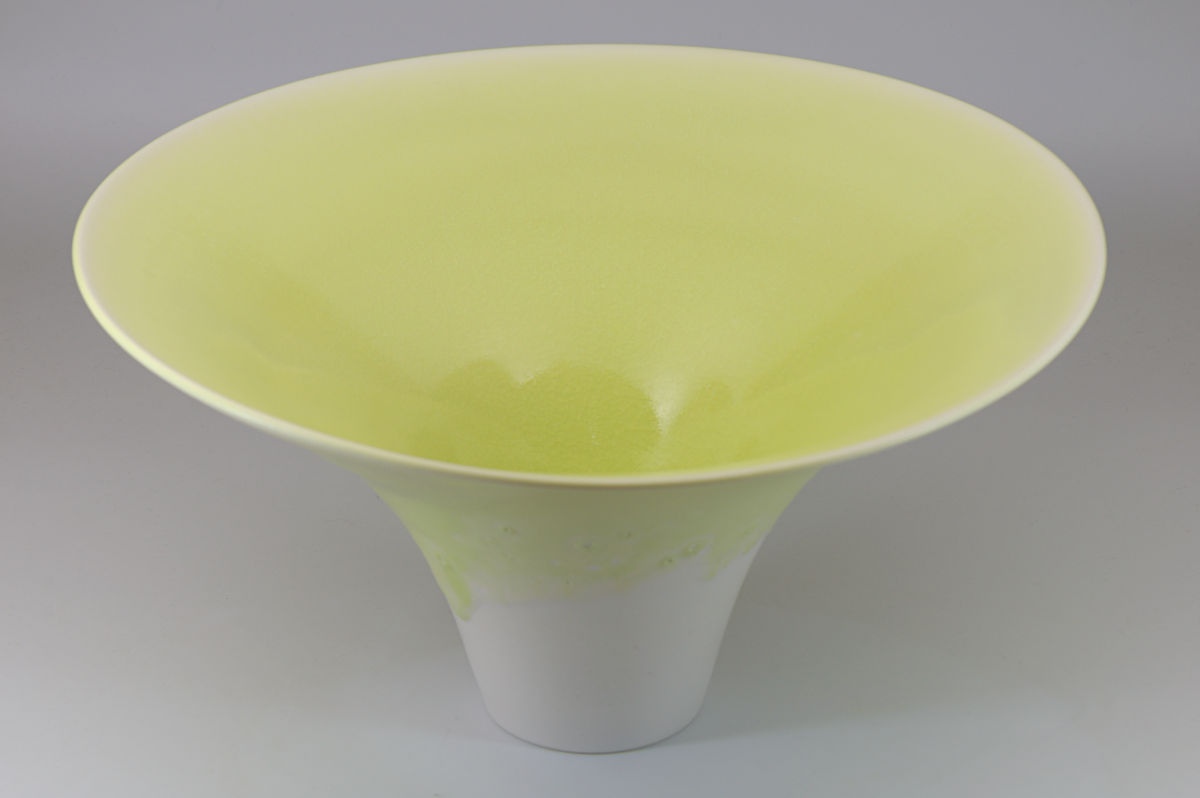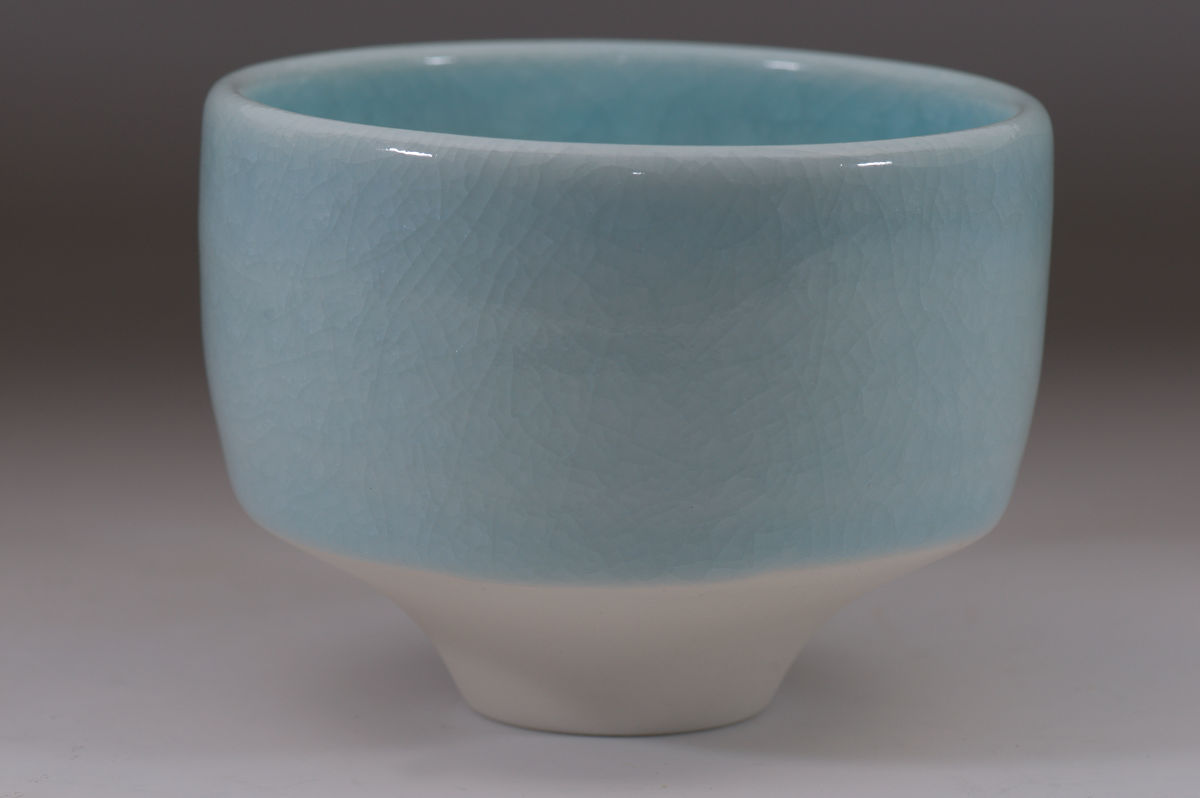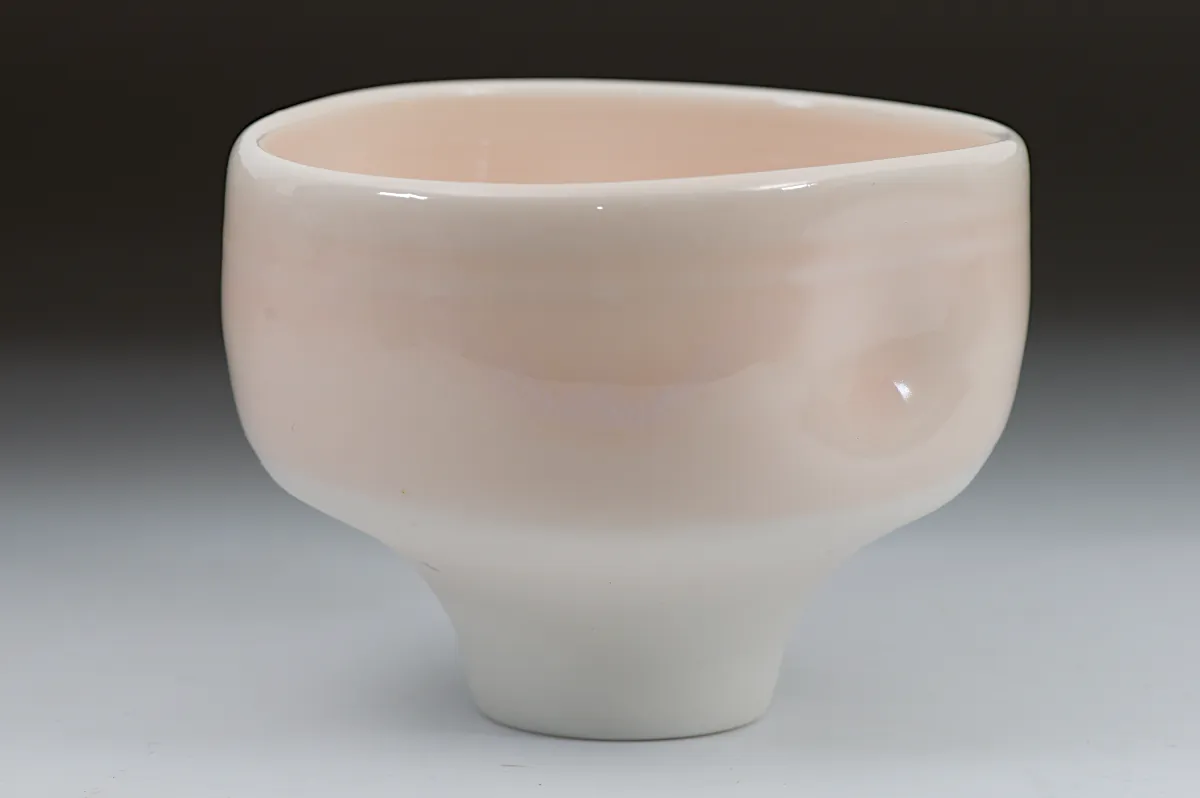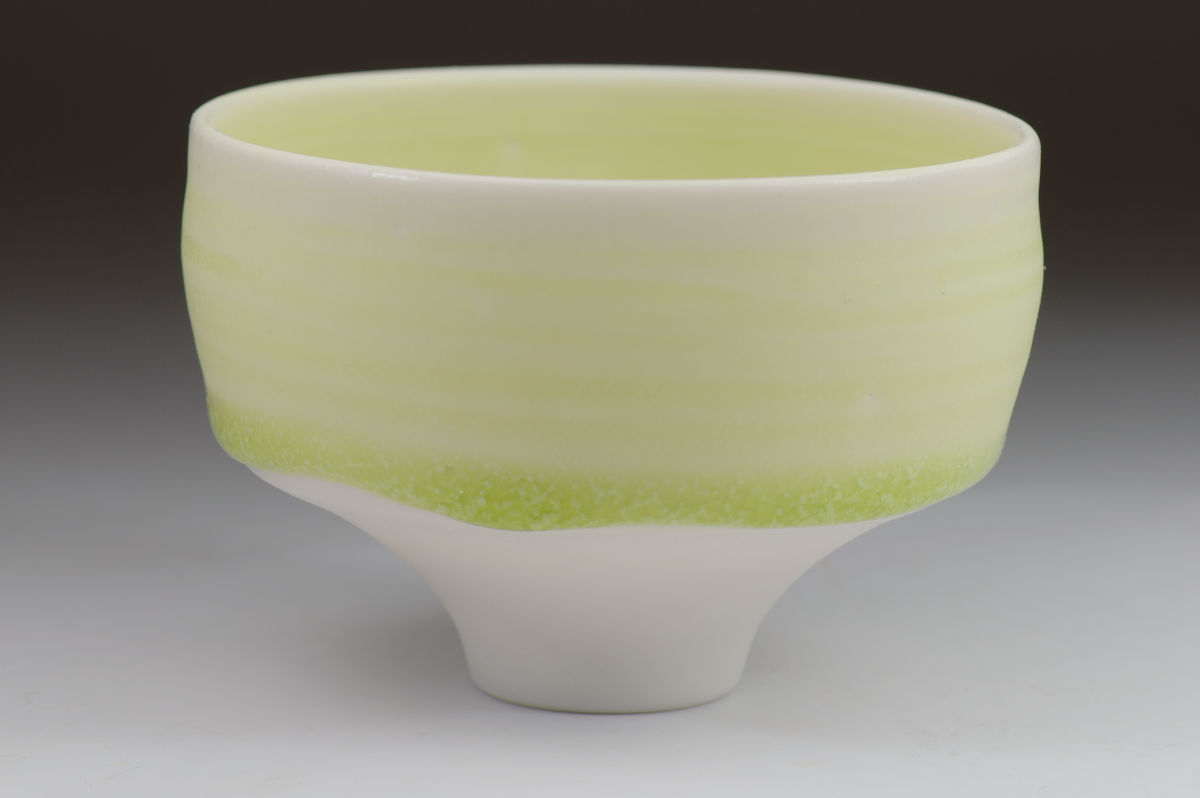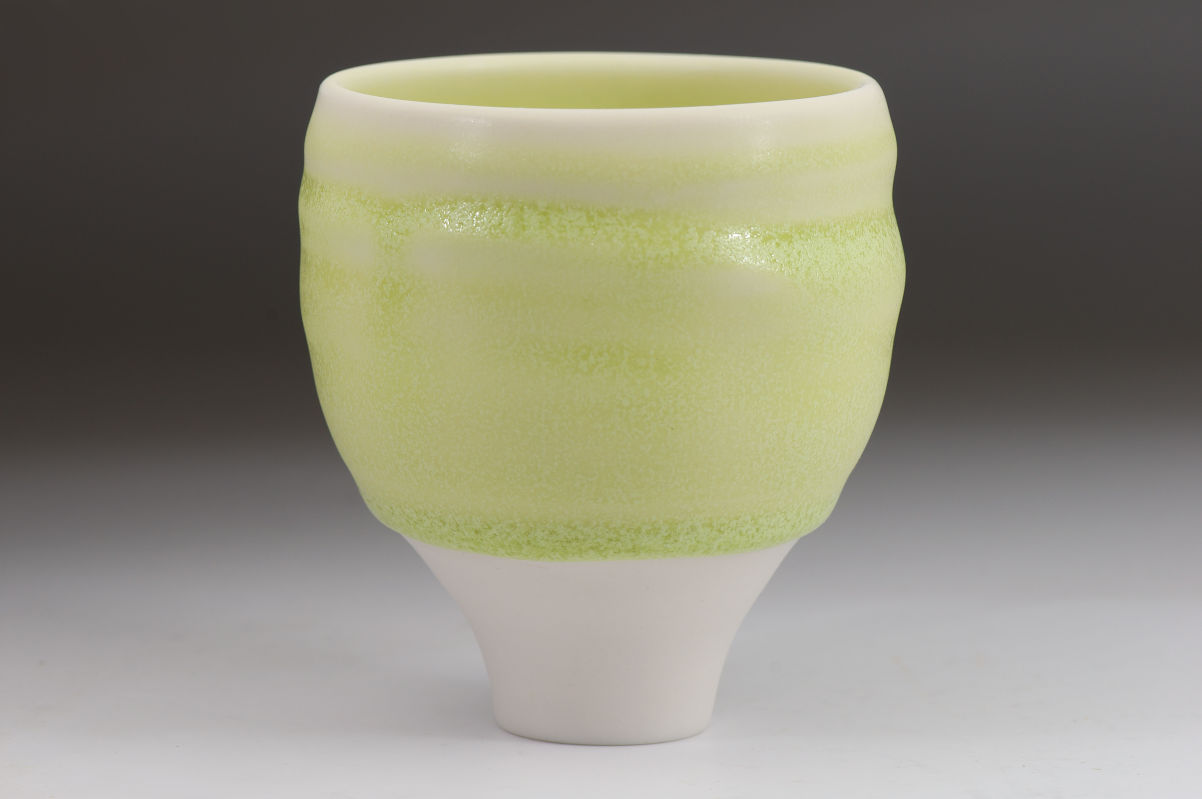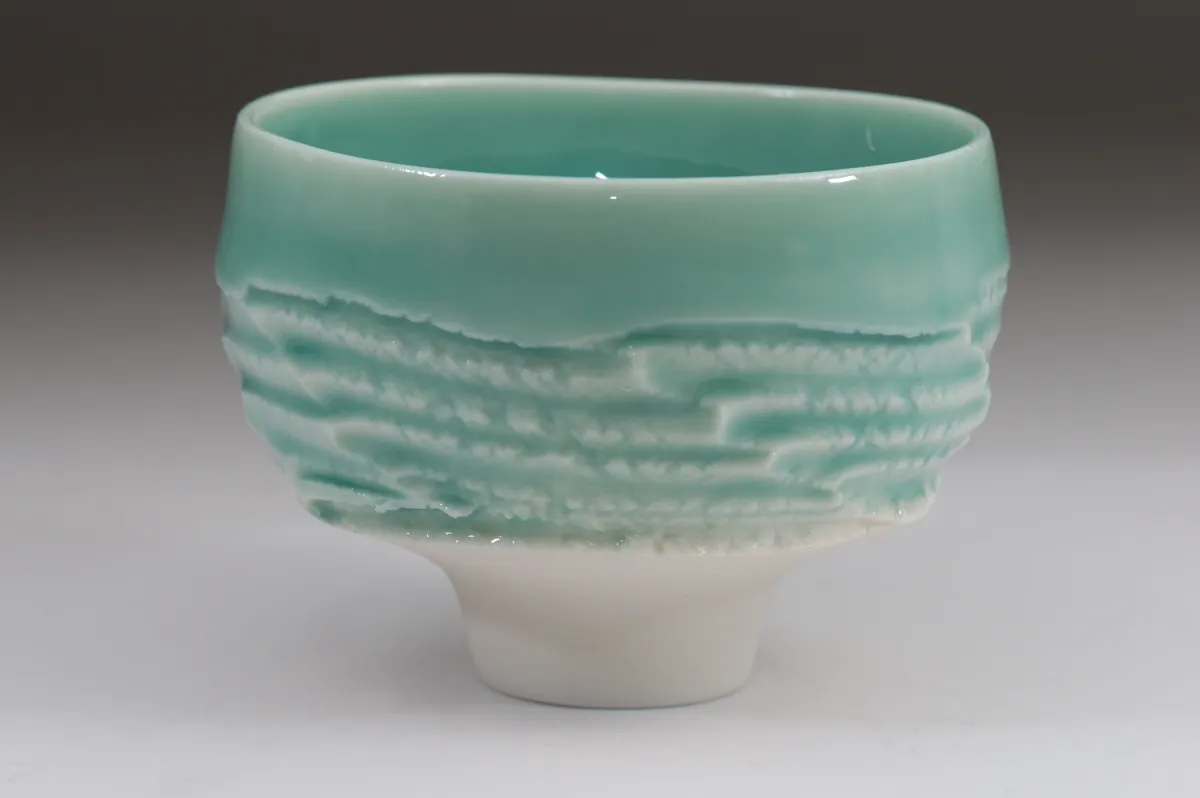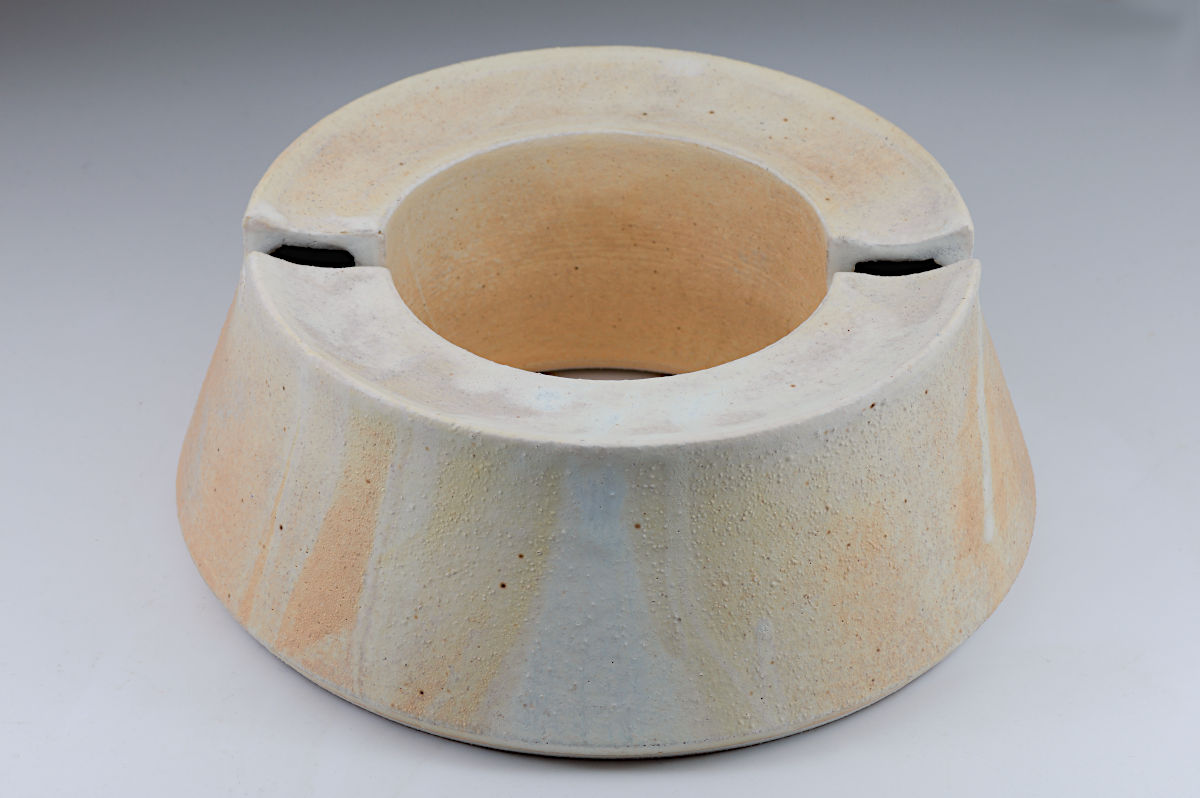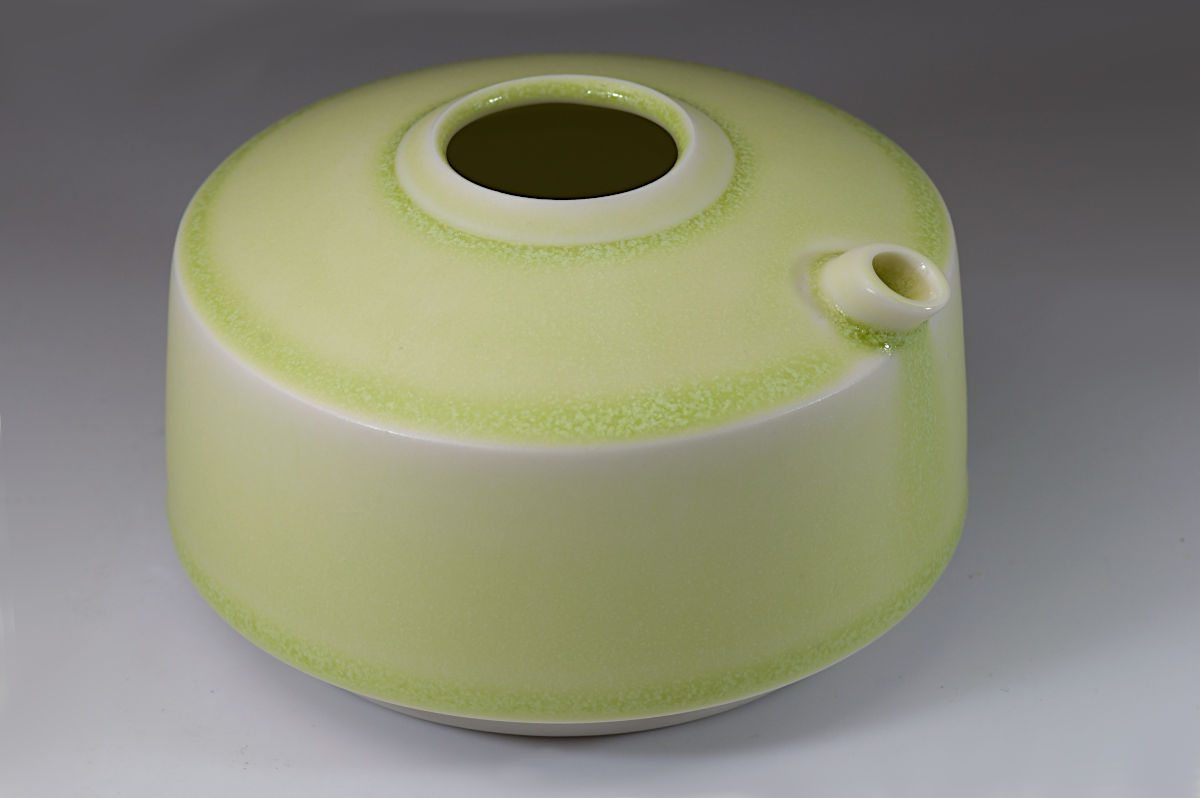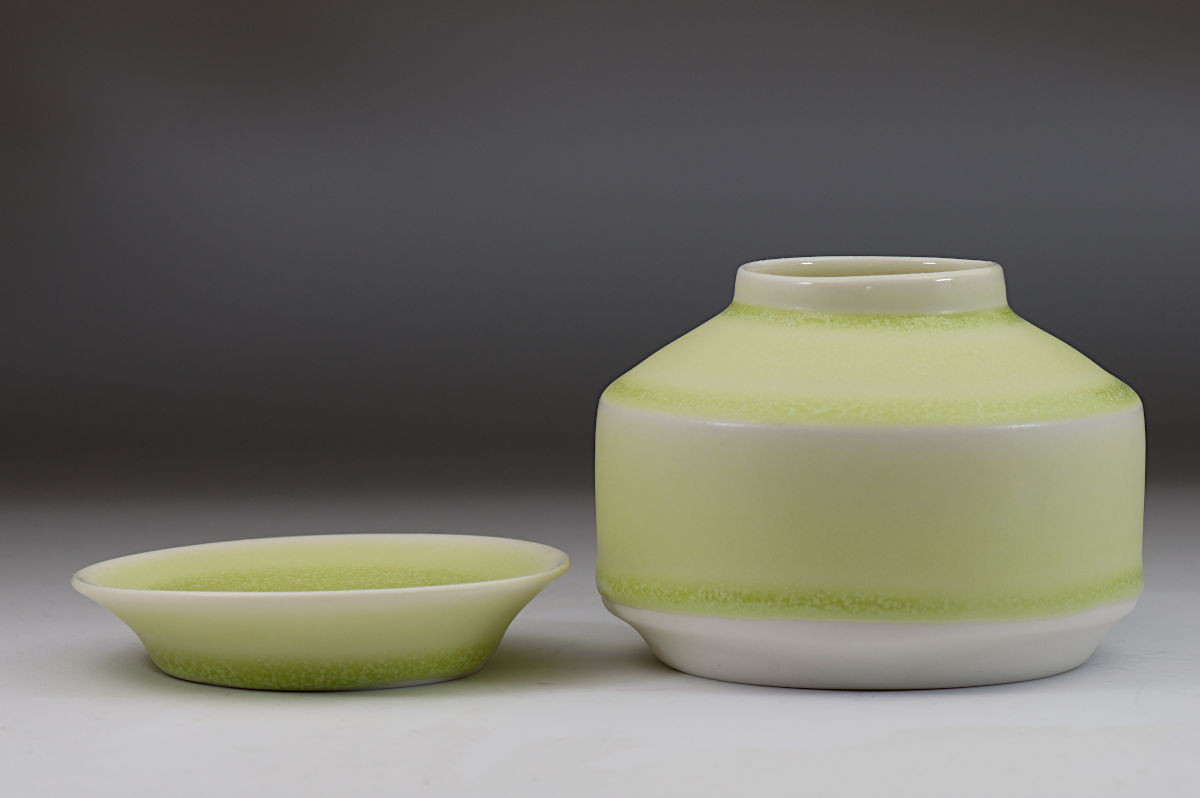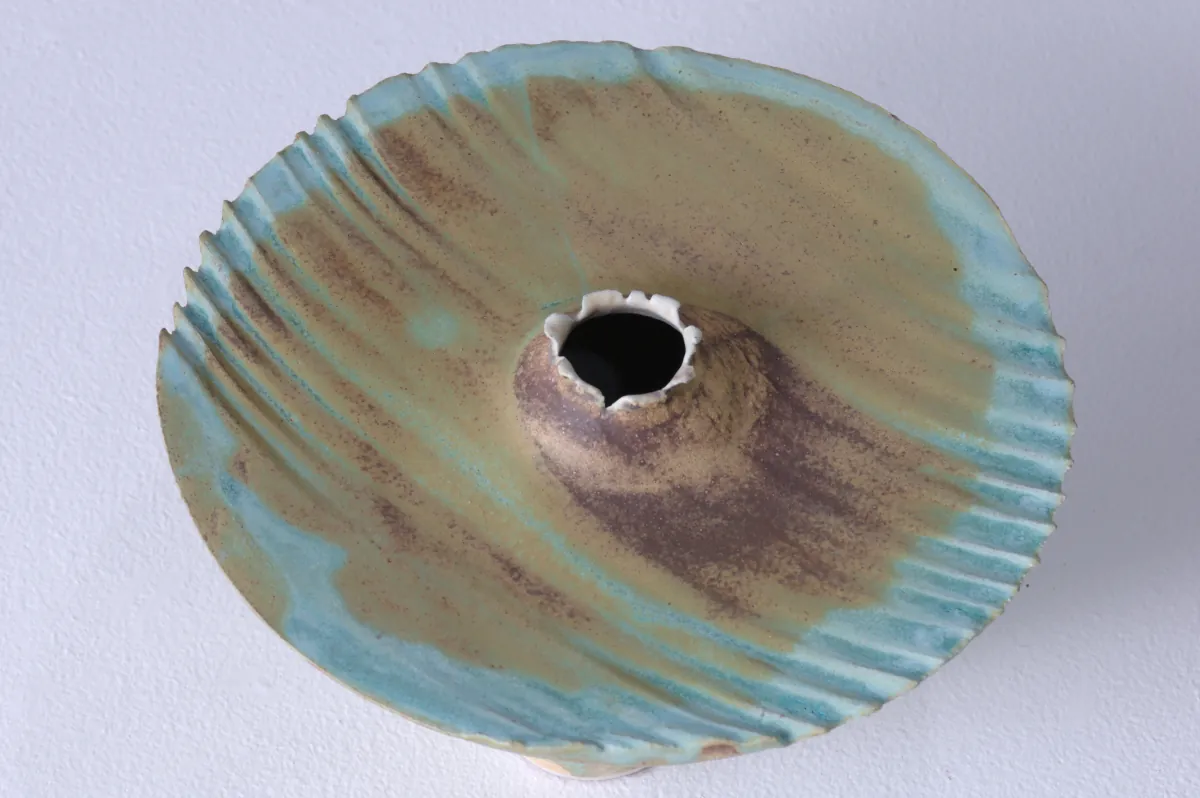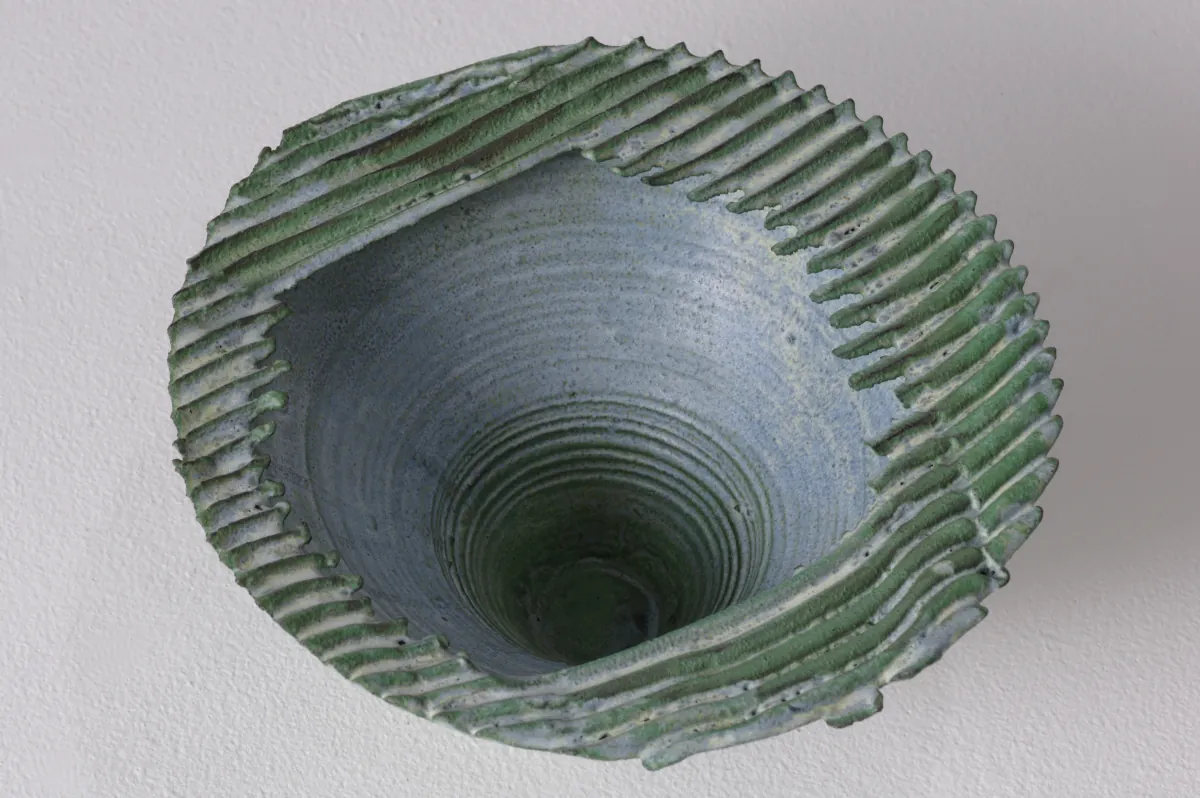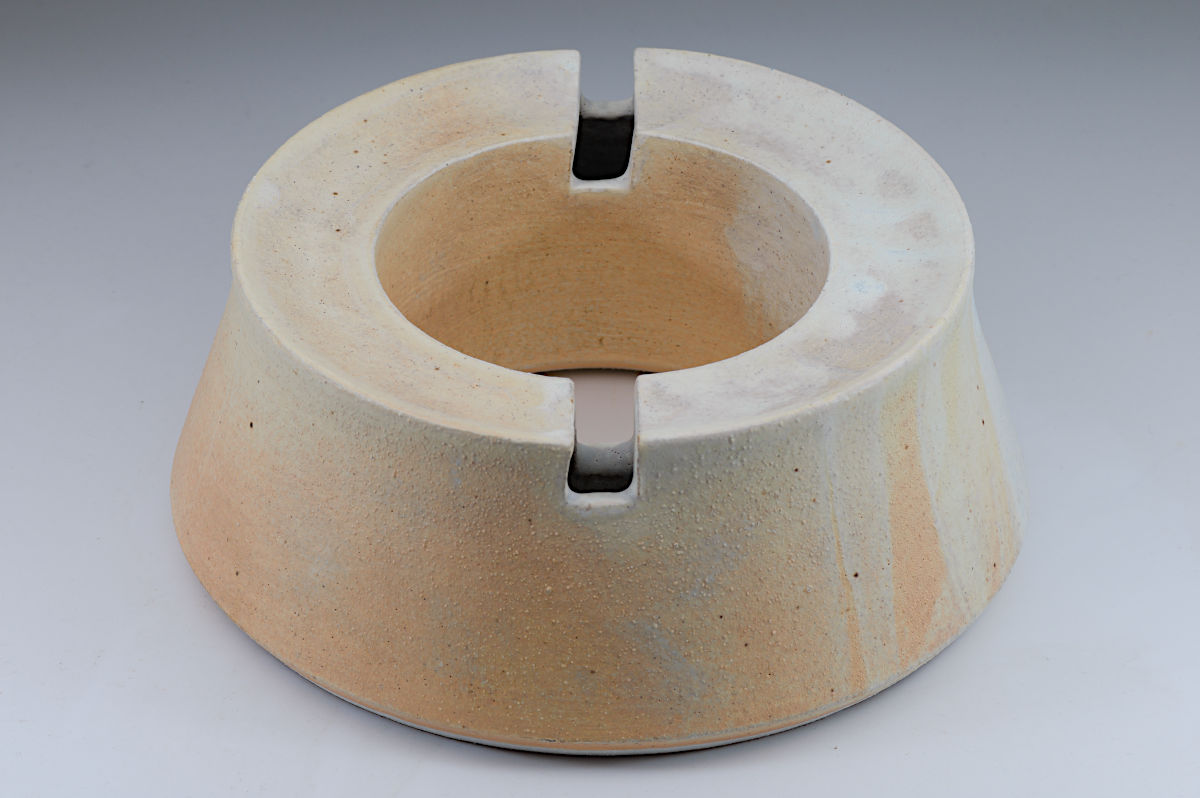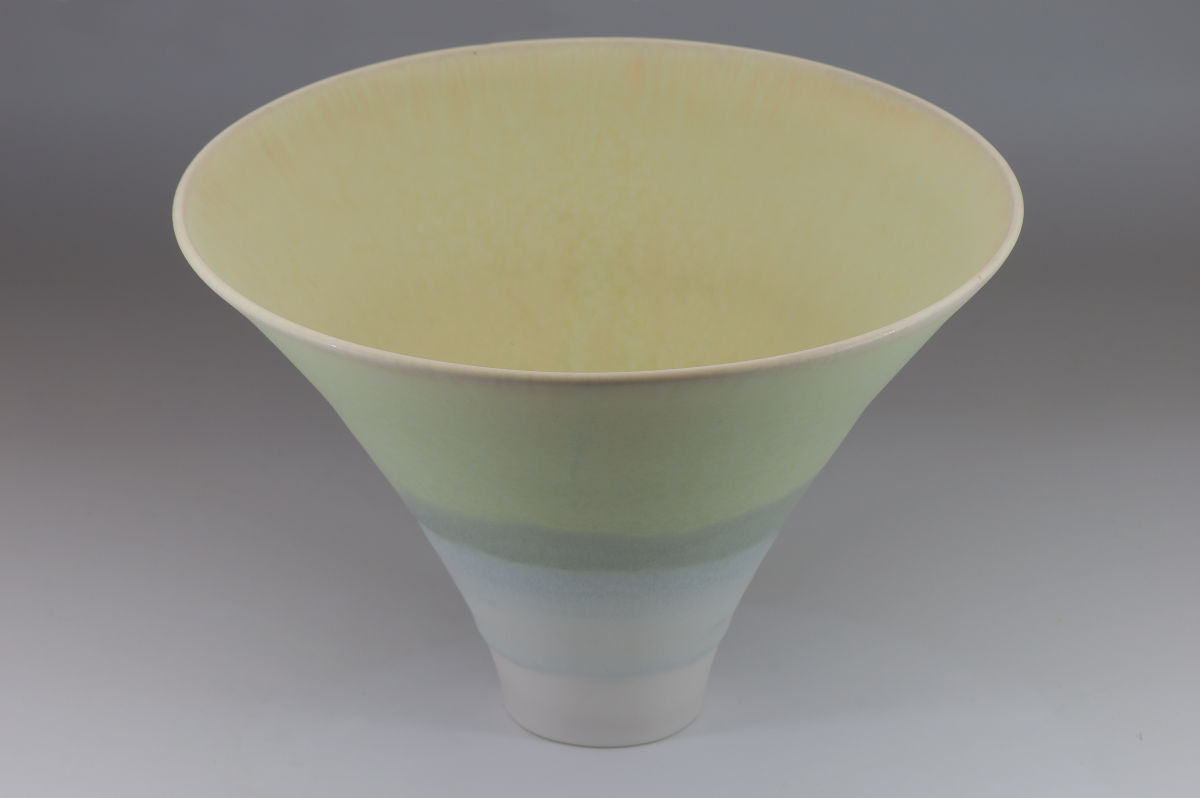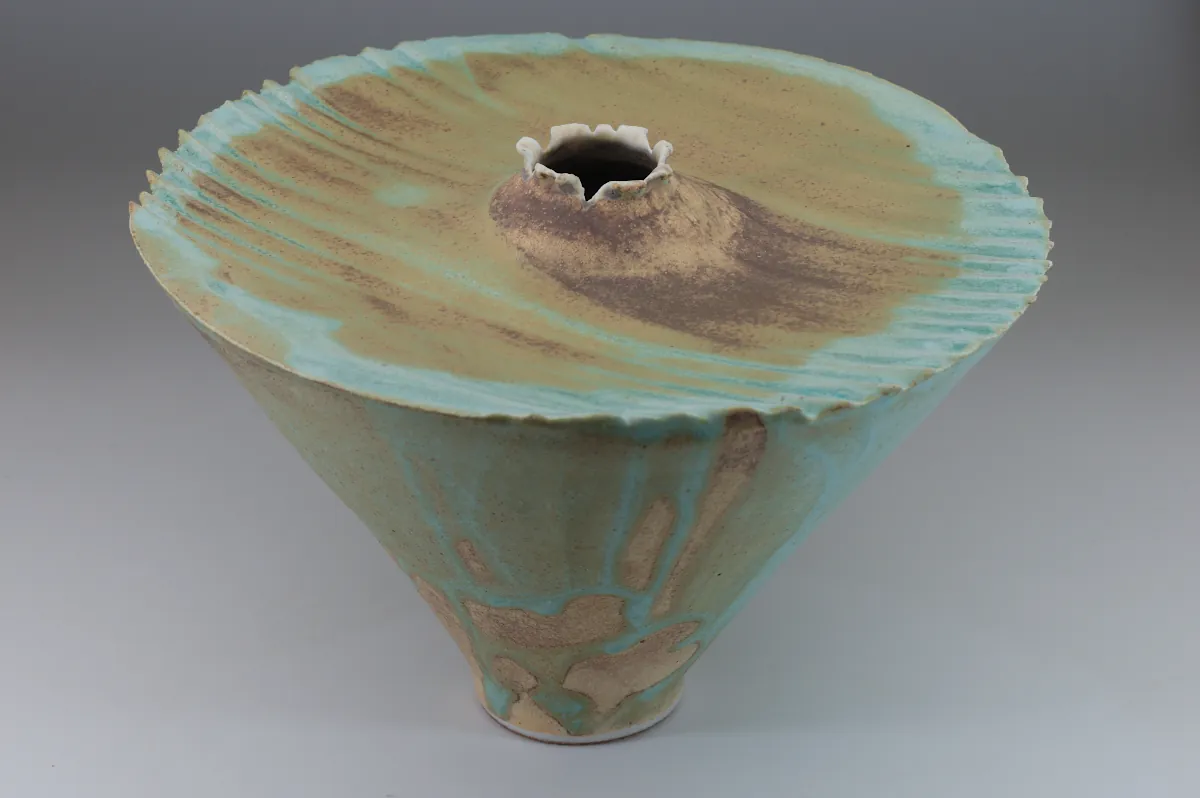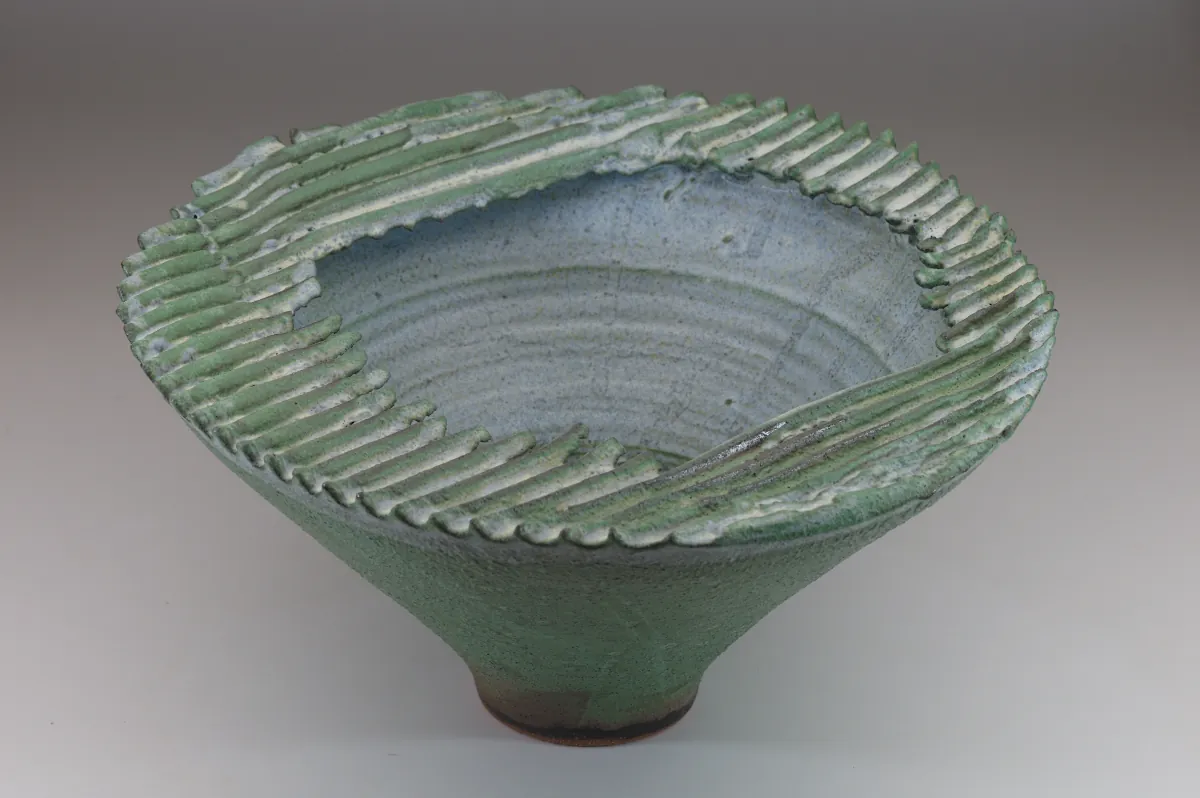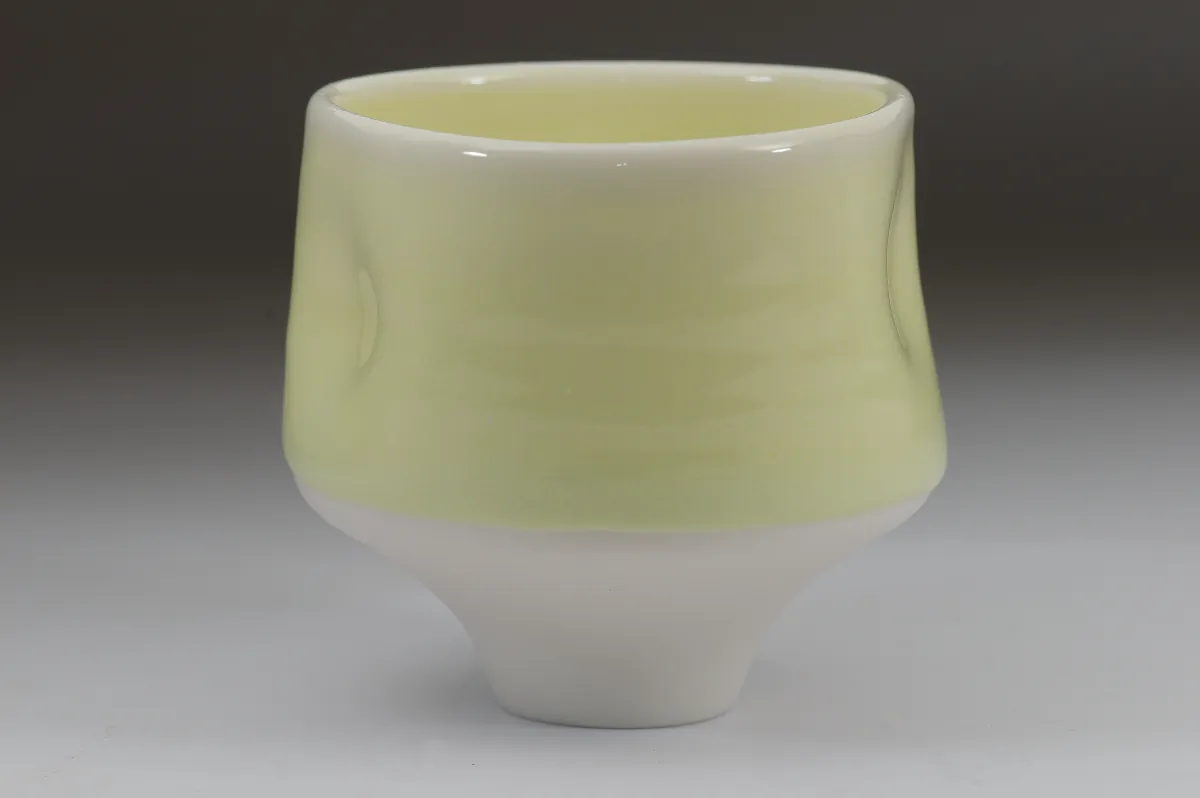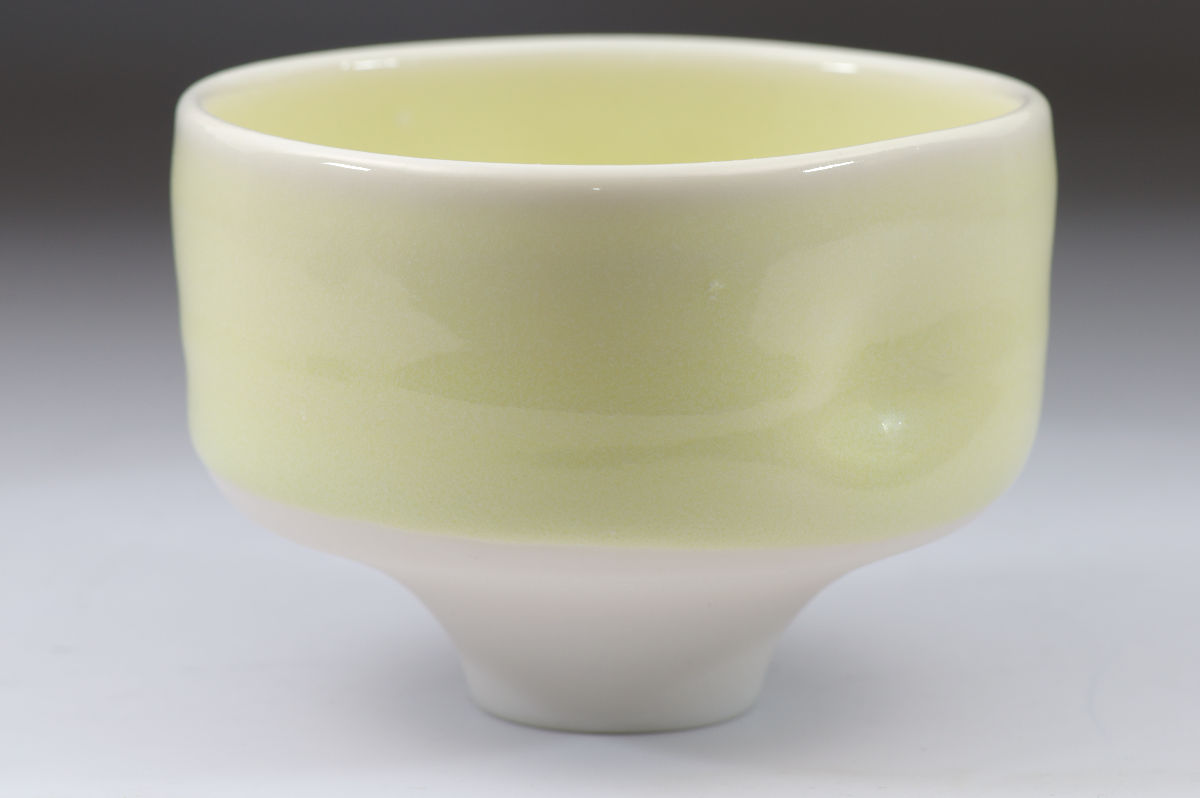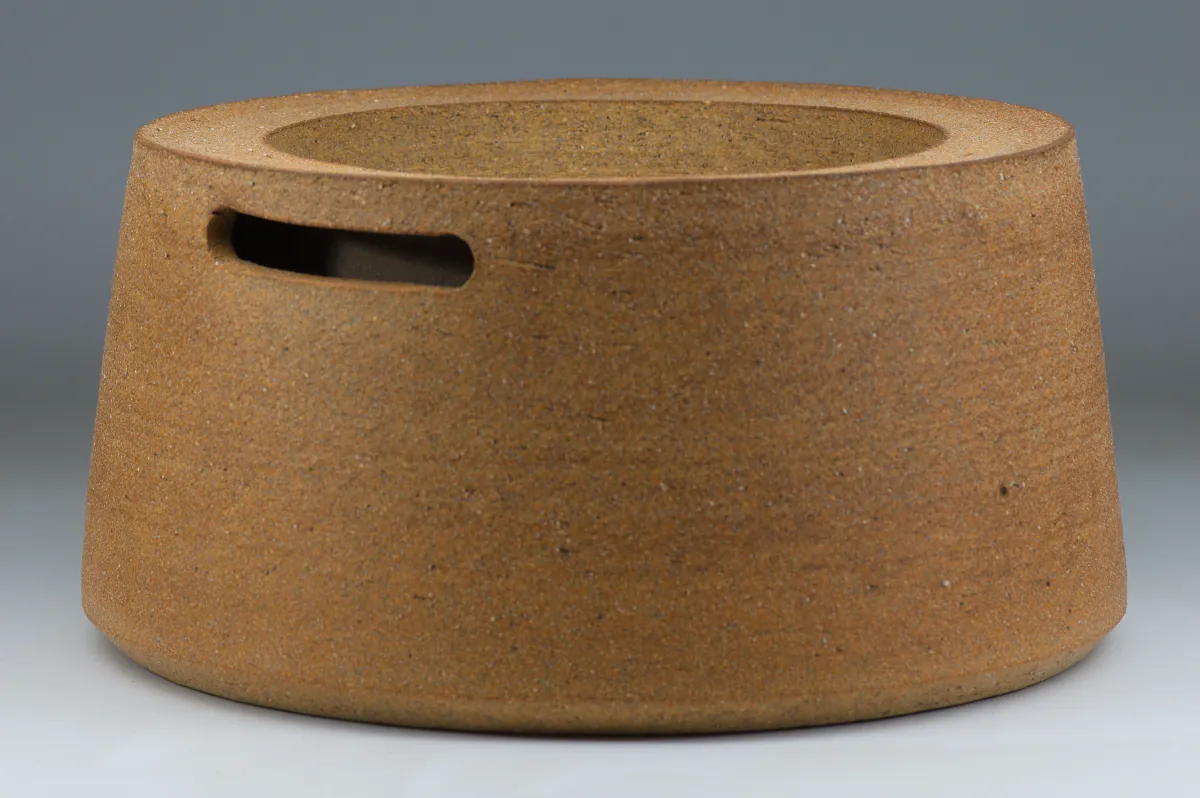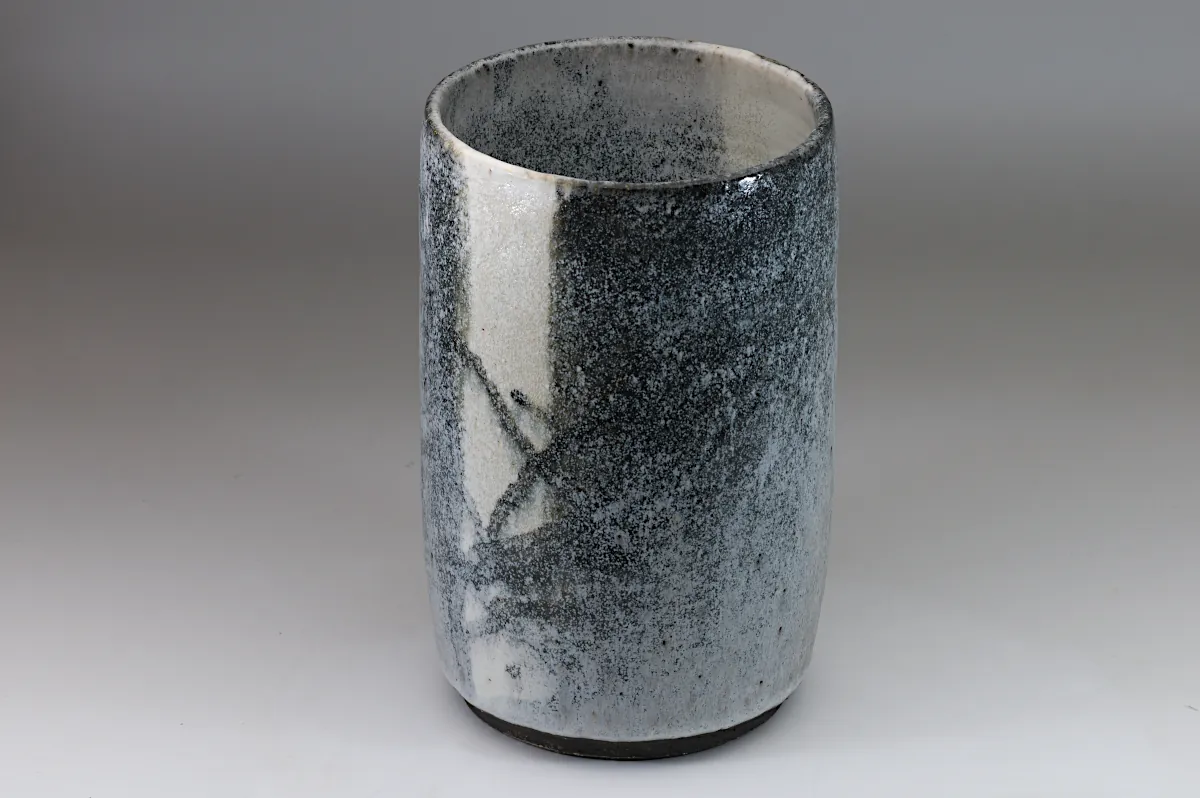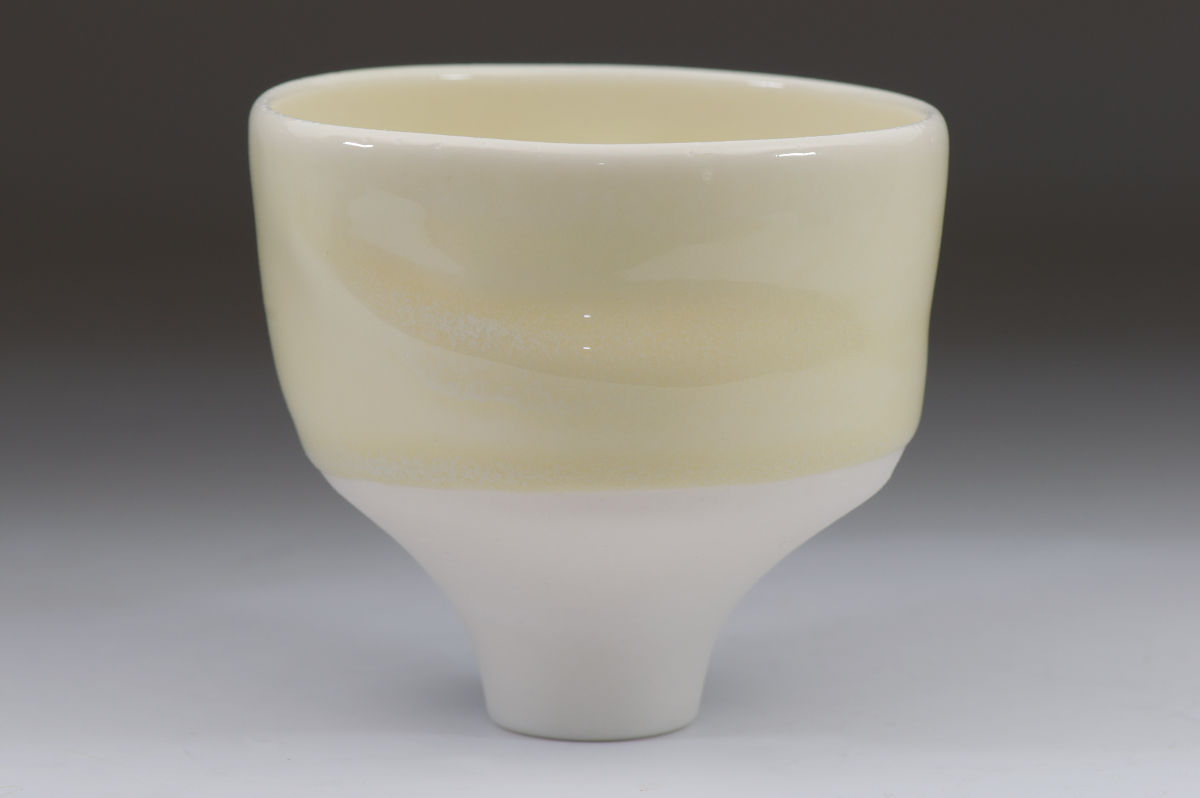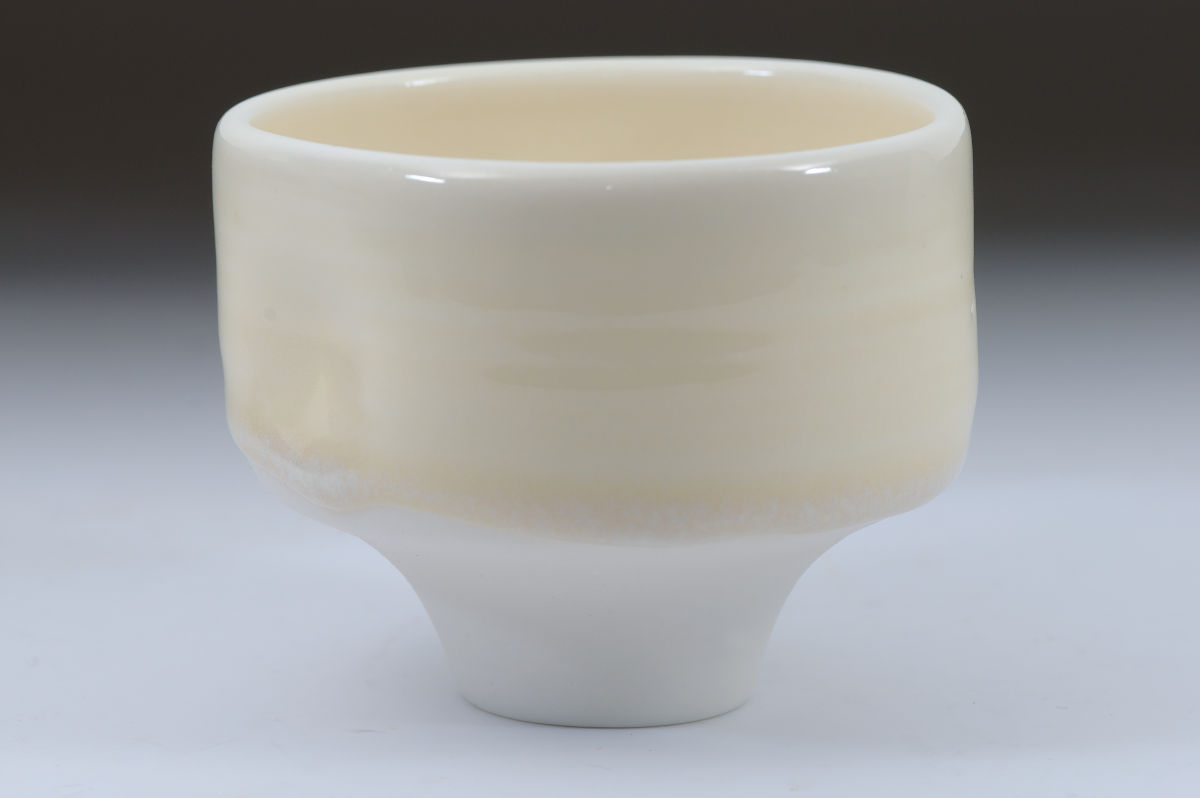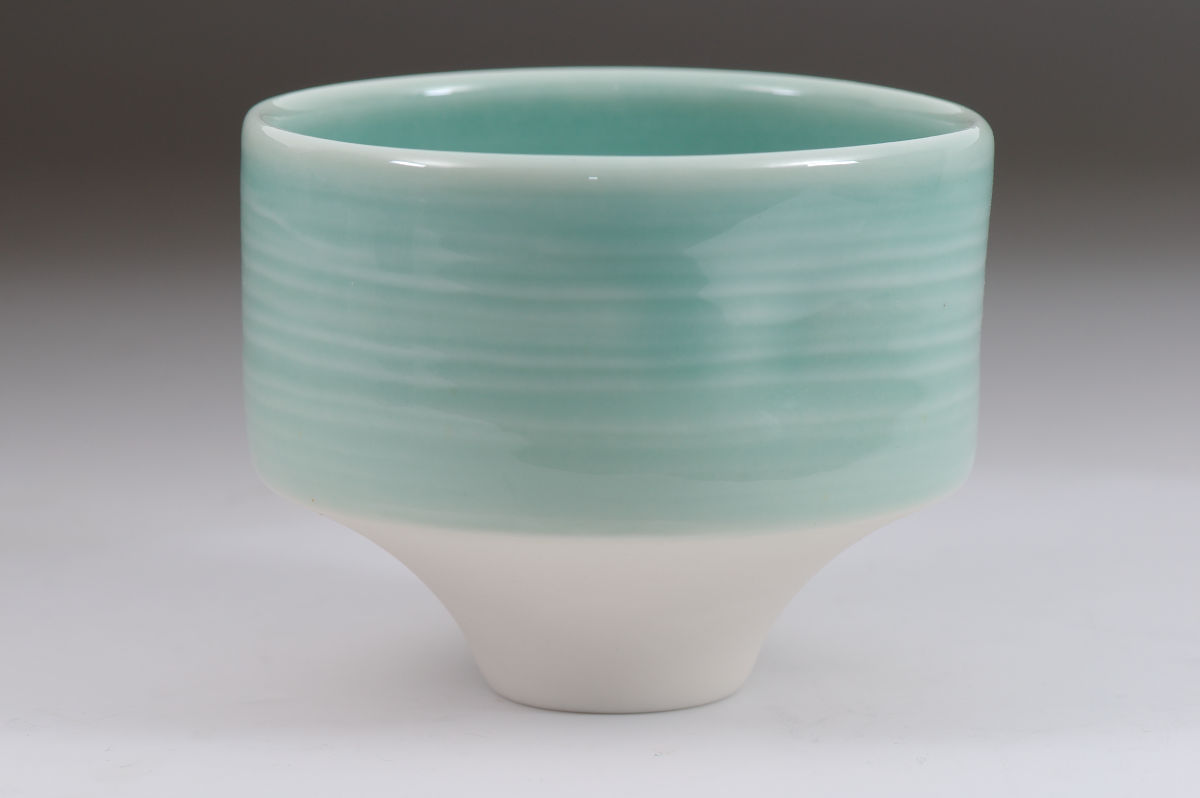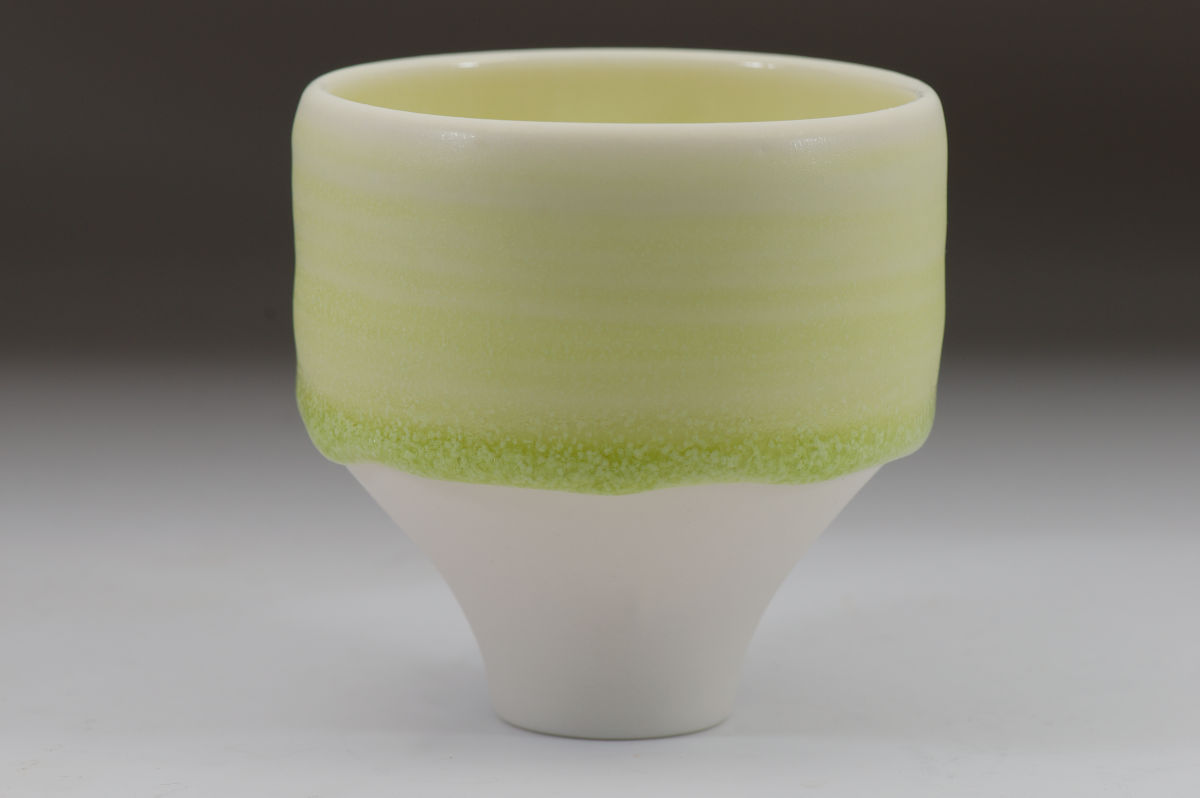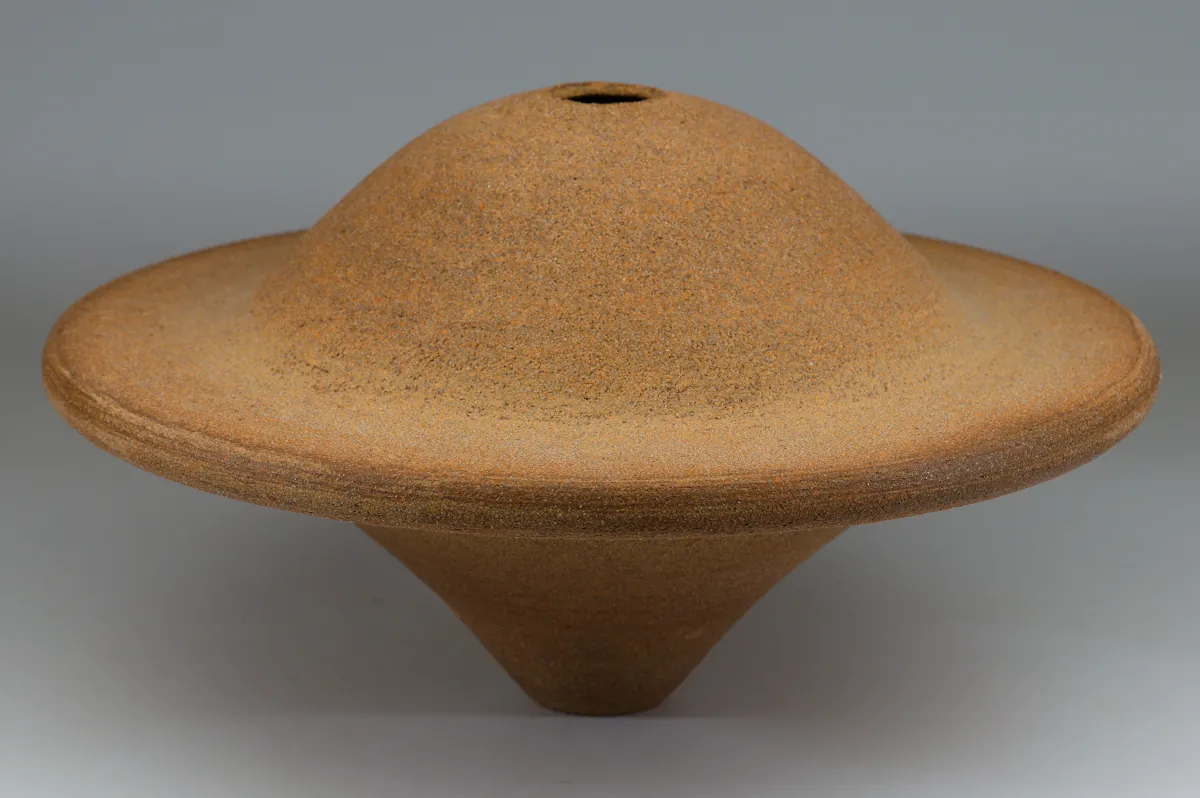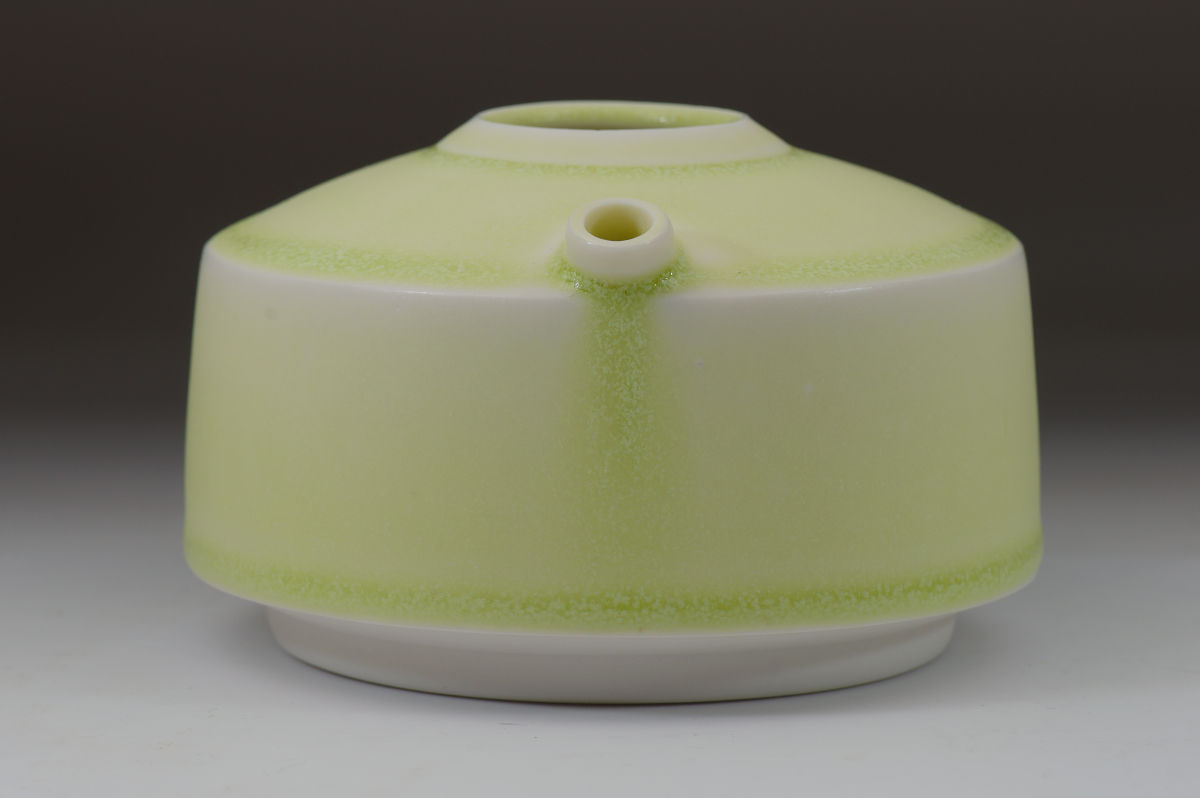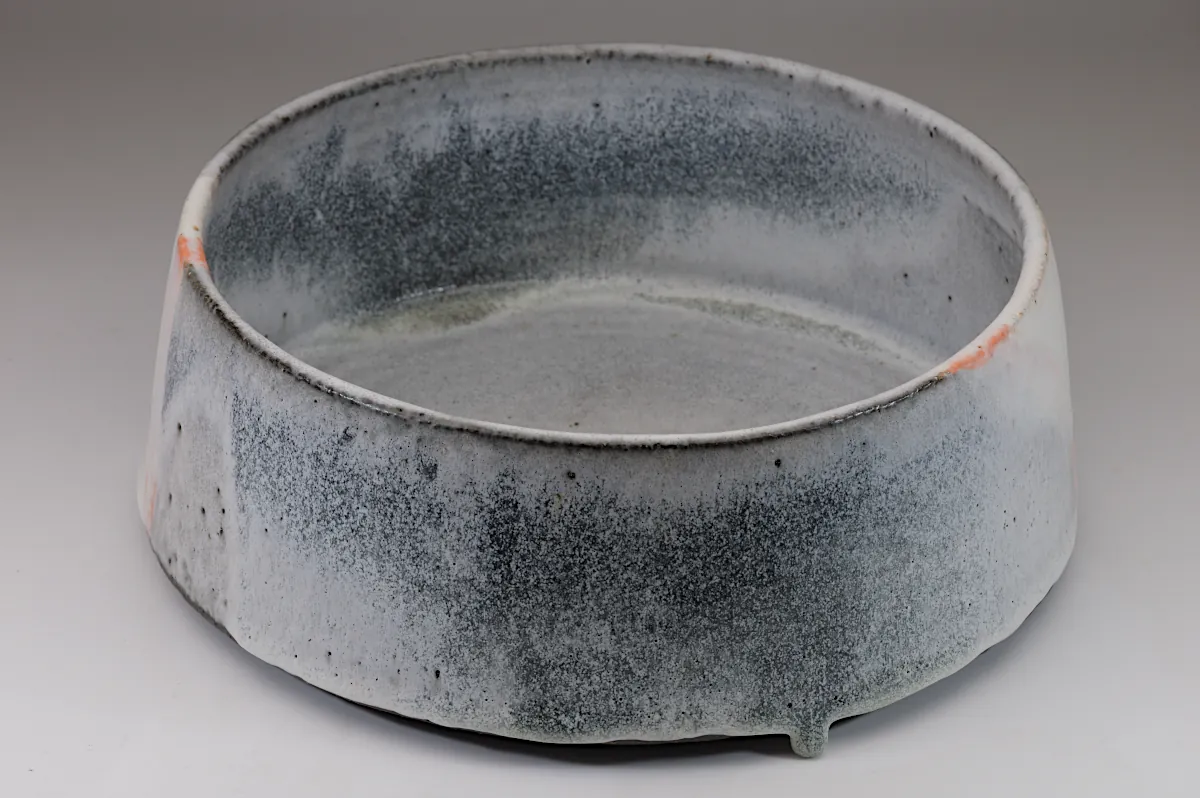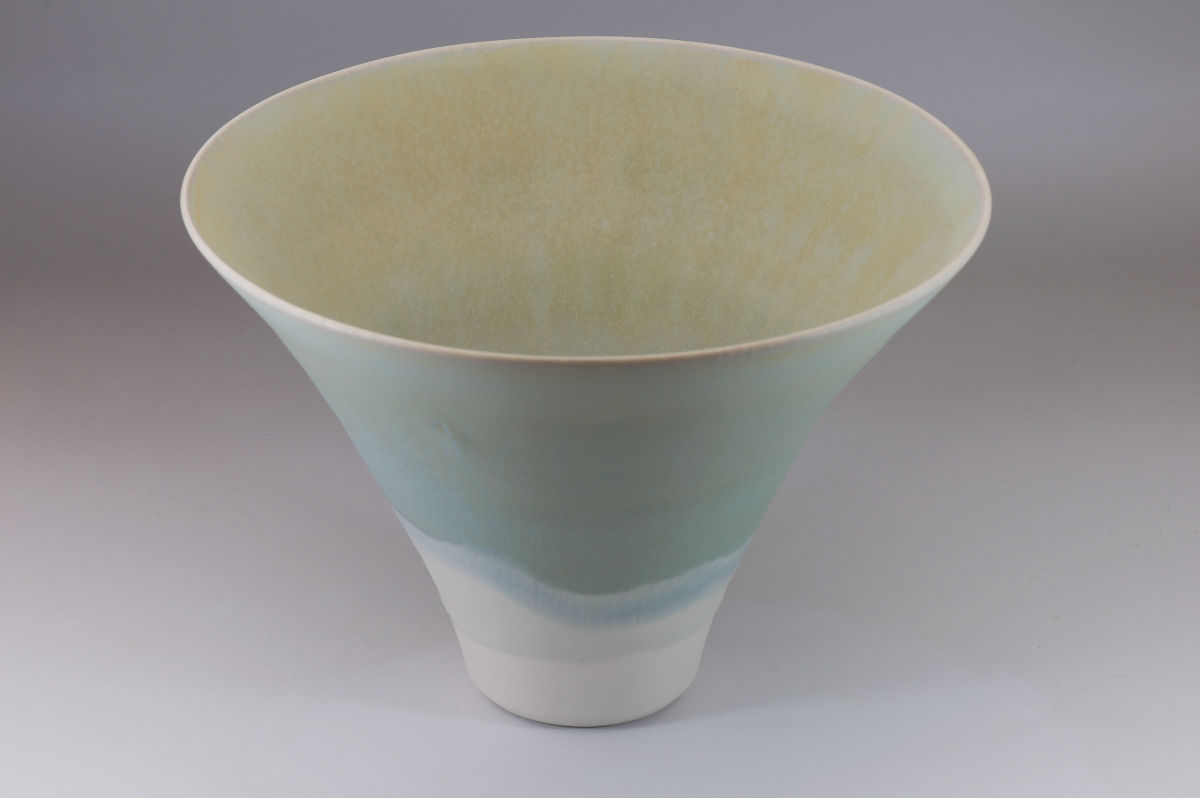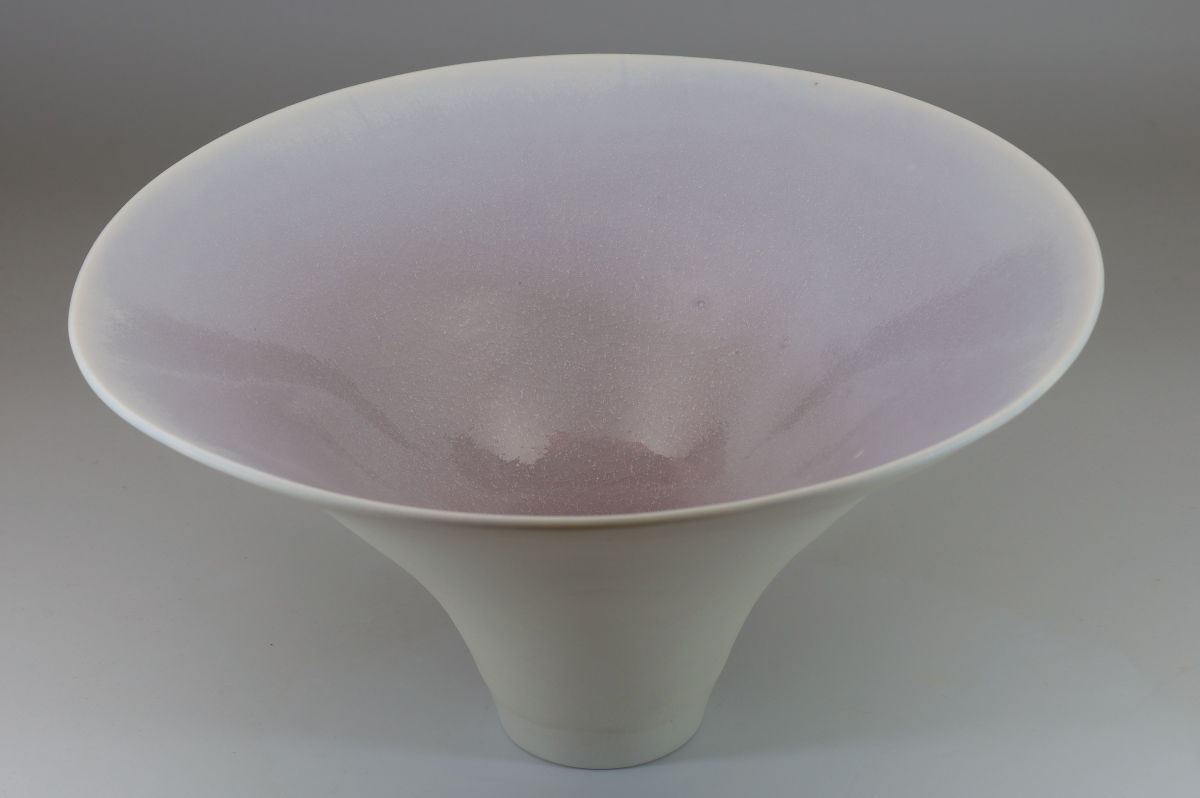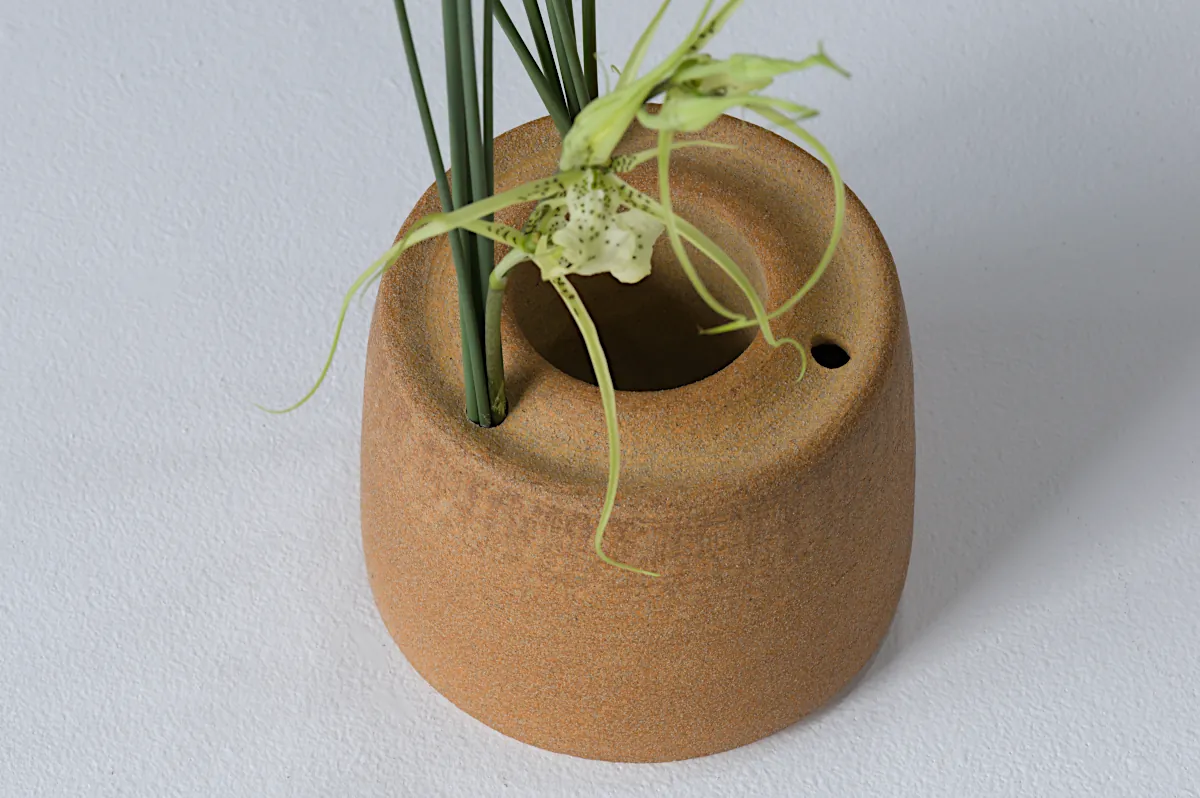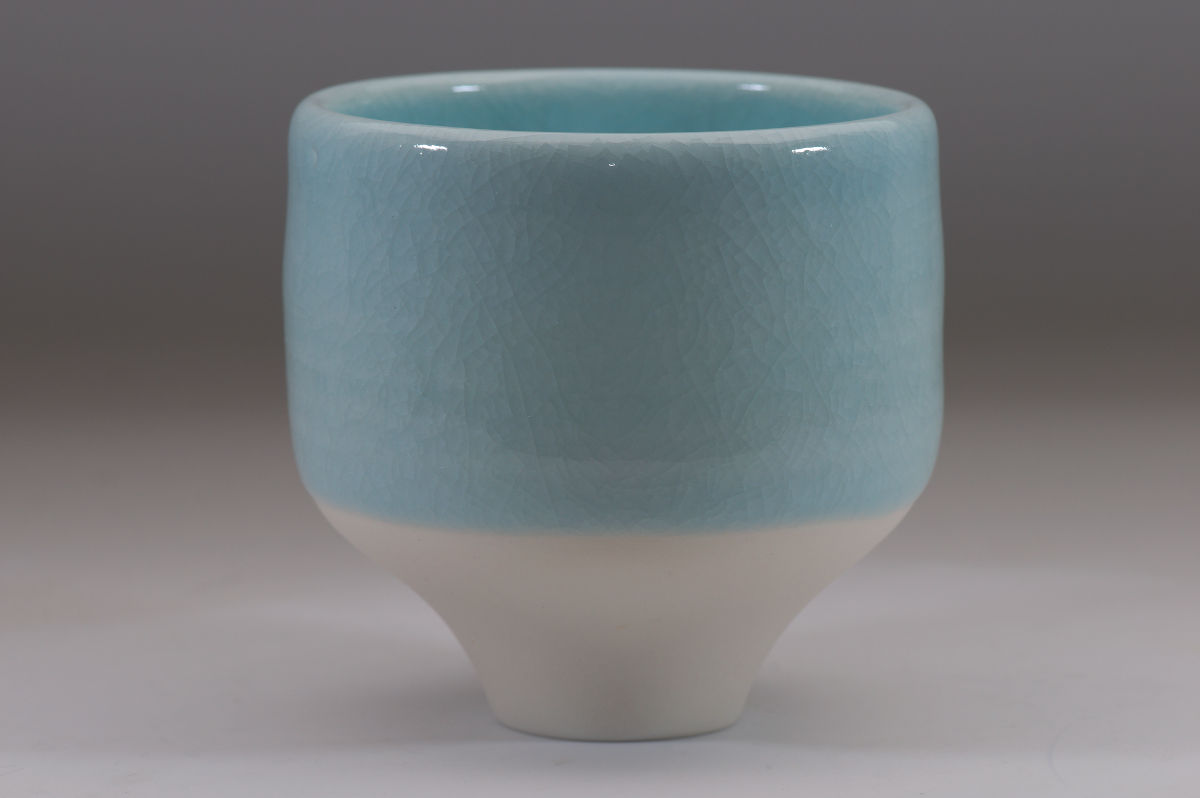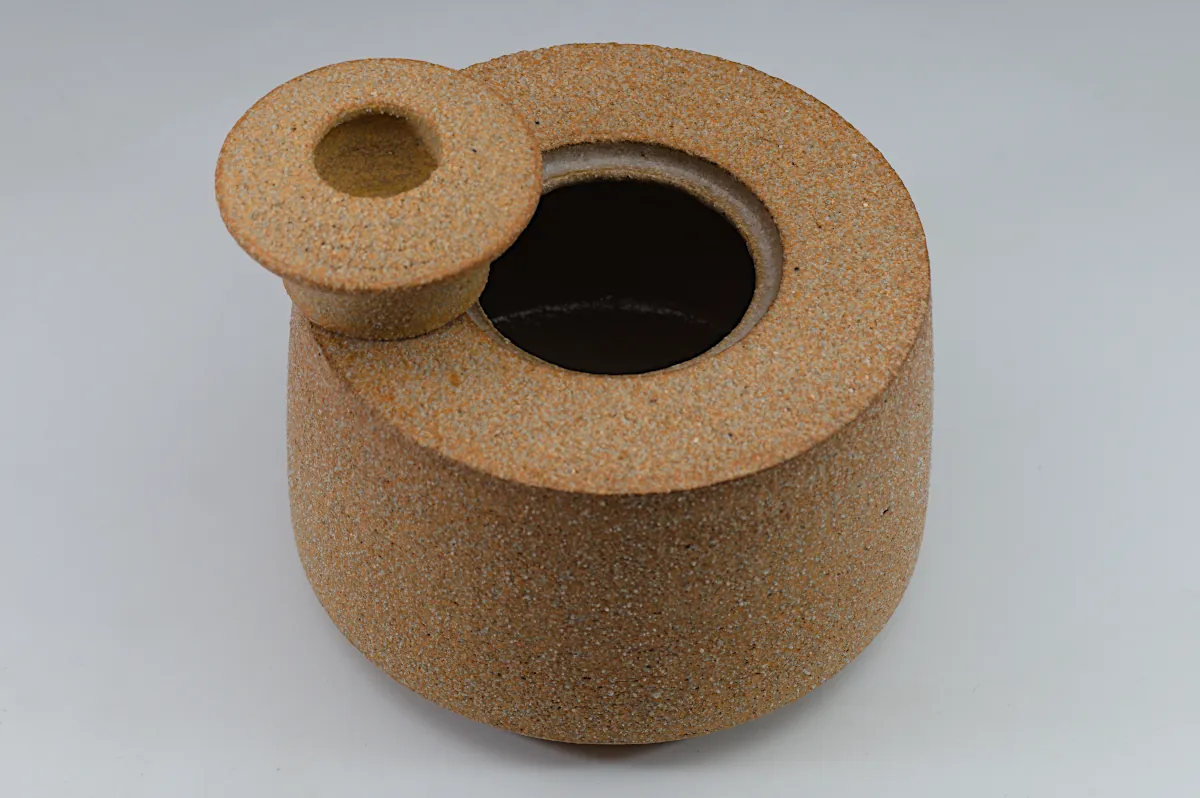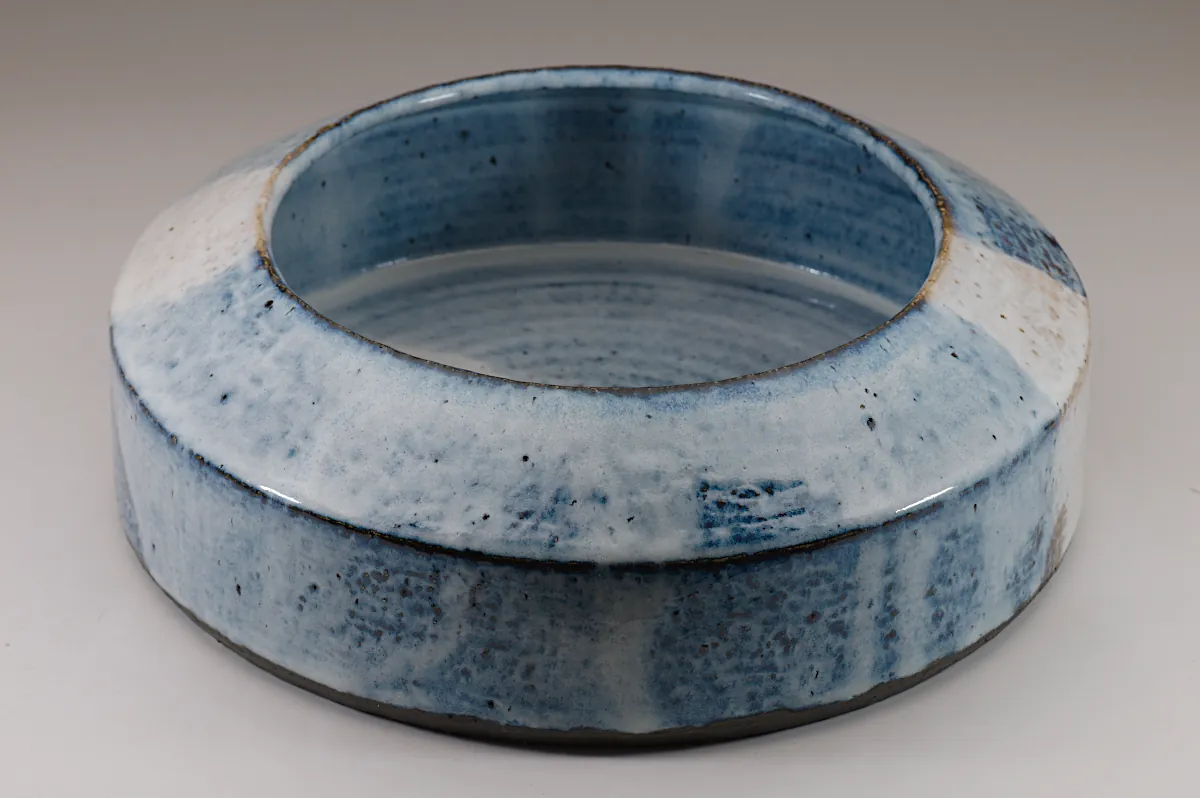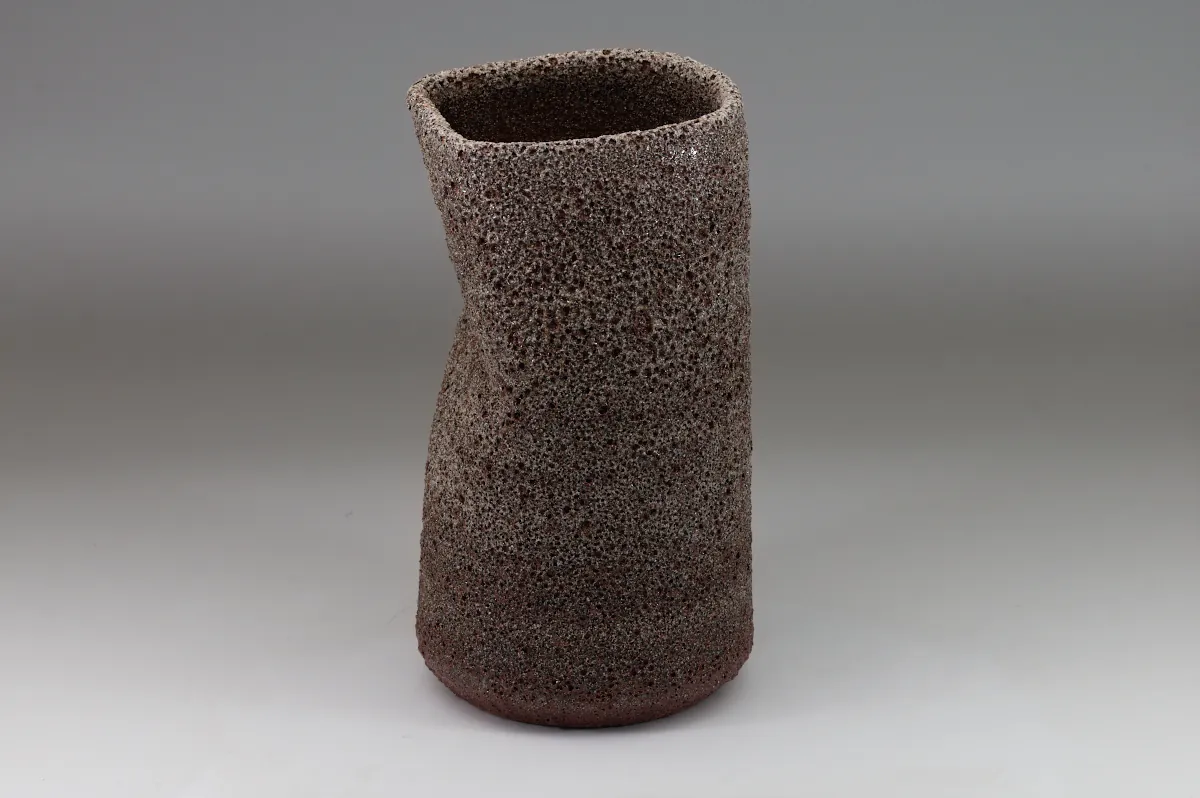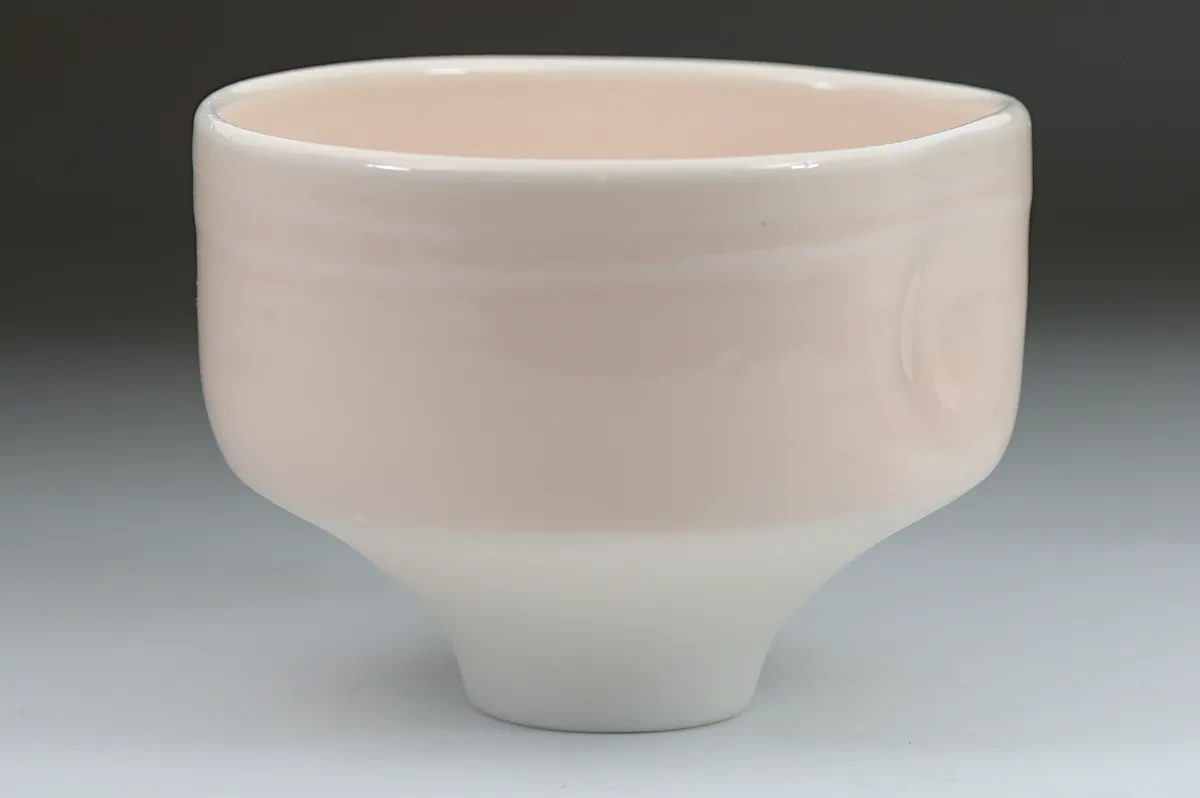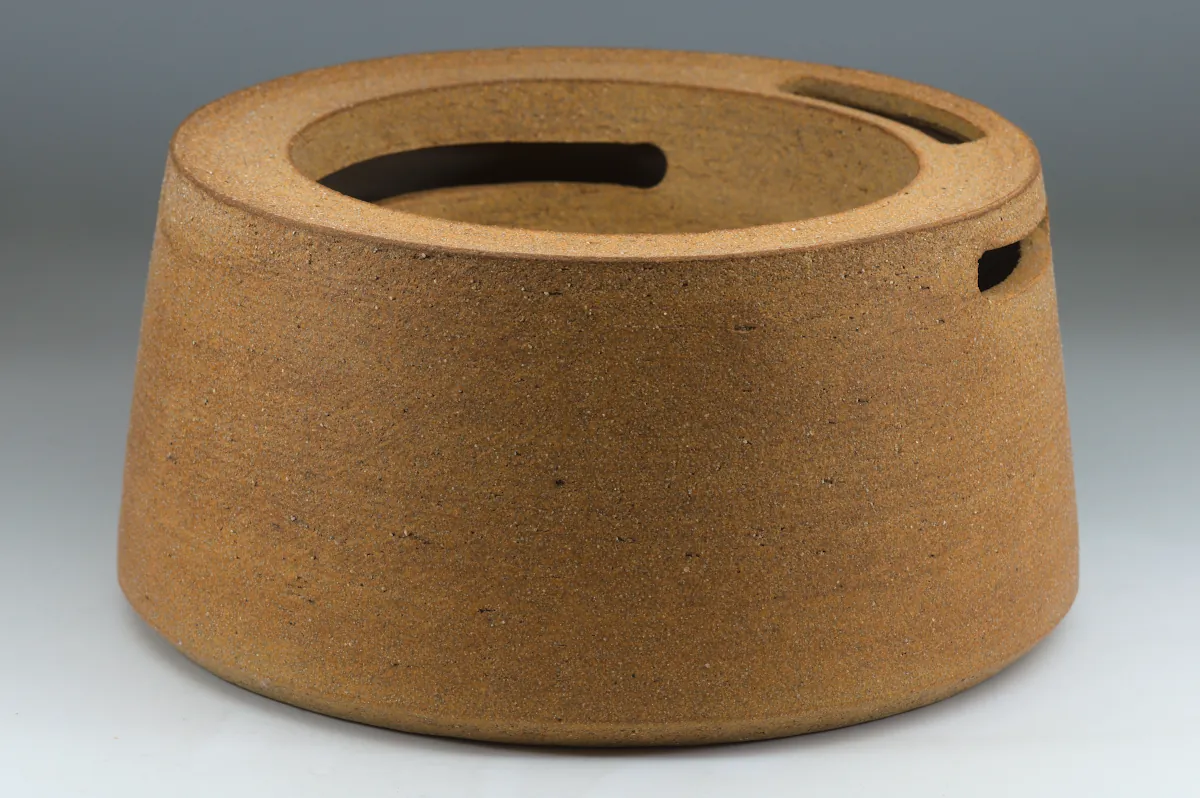
Yazd 1 : : Double Walled Vessel 11 x 22cm
On the Beam Solo Exhibition 2024
On the Beam showcases the broad range of forms and surface textures which may be achieved on the wheel, sometimes incorporating hand building techniques - Comsat, for example, consists of two halves joined together at a later stage. The exhibition features works created using a sandy stoneware clay or fine white porcelain with some new, original glazes. All works were high fired to 1280°C.
Double Walled Vessels
The double walled vessel occurs again in this exhibition, but with a more geometric form. These vessels are completely closed during the throwing process and the openings cut out once the clay has stiffened a little.
Cups thrown off the hump
In contrast to the precise geometry of the double walled vessels, a more spontaneous approach is taken in throwing a series of cups off the hump. This confers individuality to each piece and a more organic quality as the clay is cut into or otherwise manipulated in the process of throwing - there is no additional surface treatment once the piece has been thrown. Thus, the ripples and contours and deep texture form spontaneously as a result of this throwing technique.
Throwing off the hump facilitates the creation of a deep foot. The steep curve down from the walls to the foot ring has both an aesthetic and practical function – it facilitates holding without the need for a handle and, together with the rippled texture or contoured walls, creates a very tactile experience.
Durable high gloss or matte glazes are applied and these contrast with the unglazed, hand polished surface of the foot. Being made of fine porcelain the rippled or contoured and textured walls are enhanced by light and shadows and the translucency of the porcelain. To add a finishing touch the glaze is also applied inside the foot ring.
Sandy Stoneware
The exterior surfaces of many of the coarse, sandy stoneware pieces are unglazed while the interiors have a clear glaze to ensure works are functional and watertight.
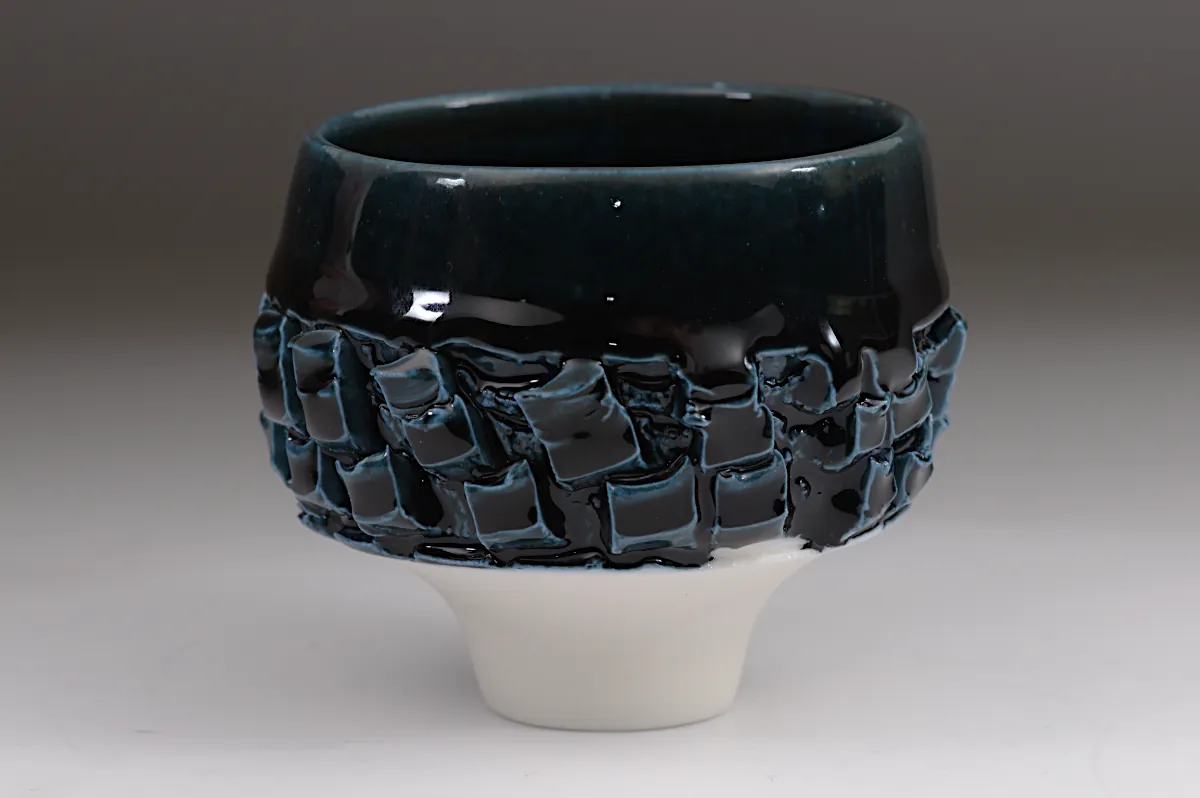
Tsuki-yo Cup 36 : : Porcelain 6.5 x 7.5cm
Surface Treatments
Porcelain
The porcelain works feature a wide range of transparent glazes I developed to enhance the whiteness and translucency of this fine material. The colour palette includes bright green, yellow, apricot, pink and turquoise. A new bright green matte crystalline glaze was also created. The recently developed turquoise matte crystalline glaze spontaneously formed a scalloped pattern below the rim on Vortex 4.
Pooling of Glazes
I create some glazes which flow during the firing: the liquid glass accumulates in hollows and on overhangs forming pools of glass or drips where the colour is deeper and in which crystals often grow as the glass cools and solidifies.
Glazes and Engobes
To create a rich, textured surface, on some of the works – Copper Waves, Geometric Torus 3, Inconsistency Trap 2, Low 1 and 2 and the Black and White Vase, an engobe was applied to the surface and a glaze applied on top.
Ikebana
Many of the vessels would lend themselves well for use with Moribana or Nageire Ikebana arrangements and a work-specific Ikebana display was created in the vase Torn by Sogetsu Ikebana teacher Vernisher Wooh. Examples of current and previous works used for ikebana may be seen on the Ikebana page.
Porcelain
For more images and further information on the nature, origins and qualities of porcelain, including Southern Ice porcelain, see the Southern Ice porcelain page.
